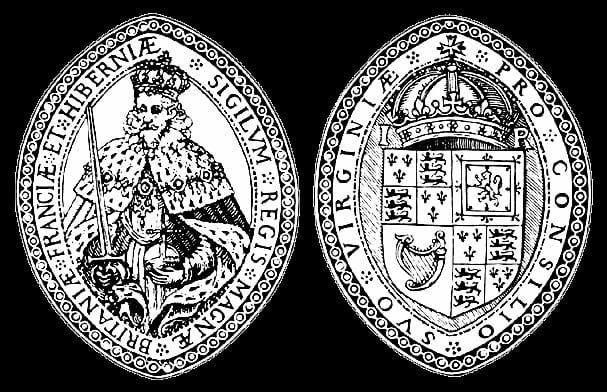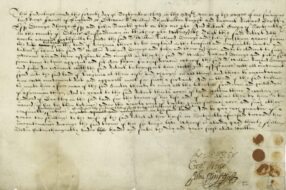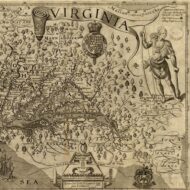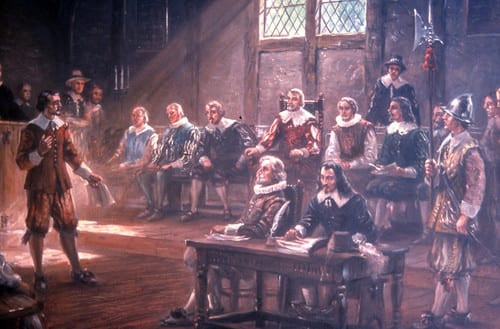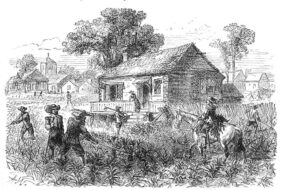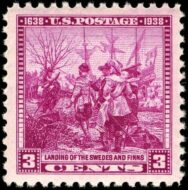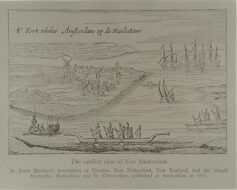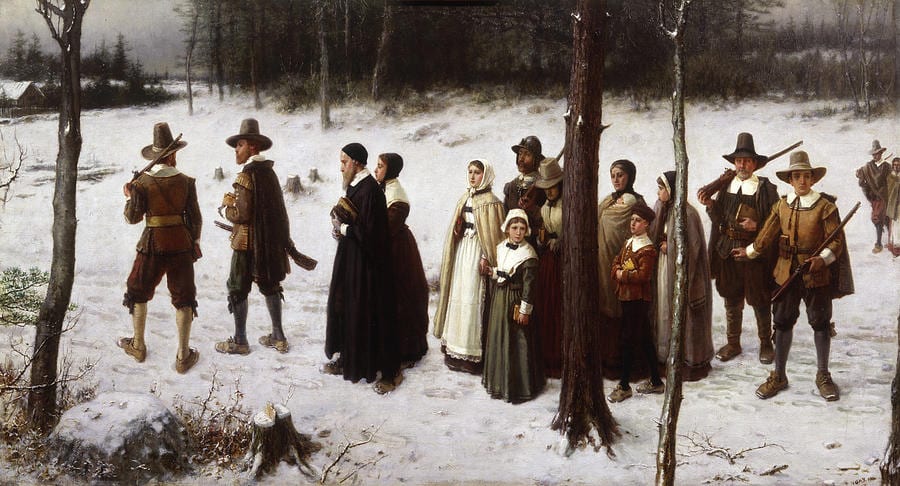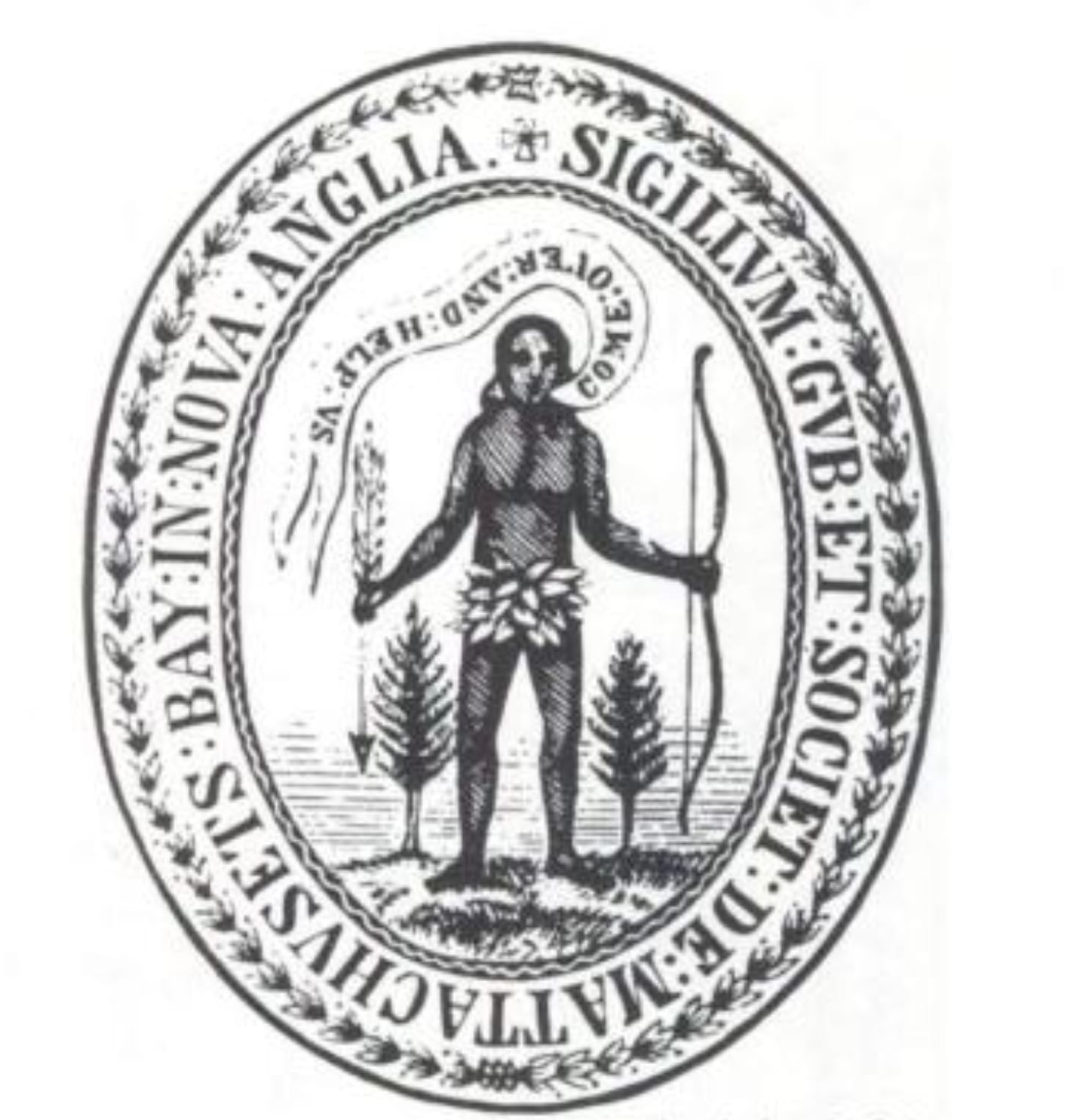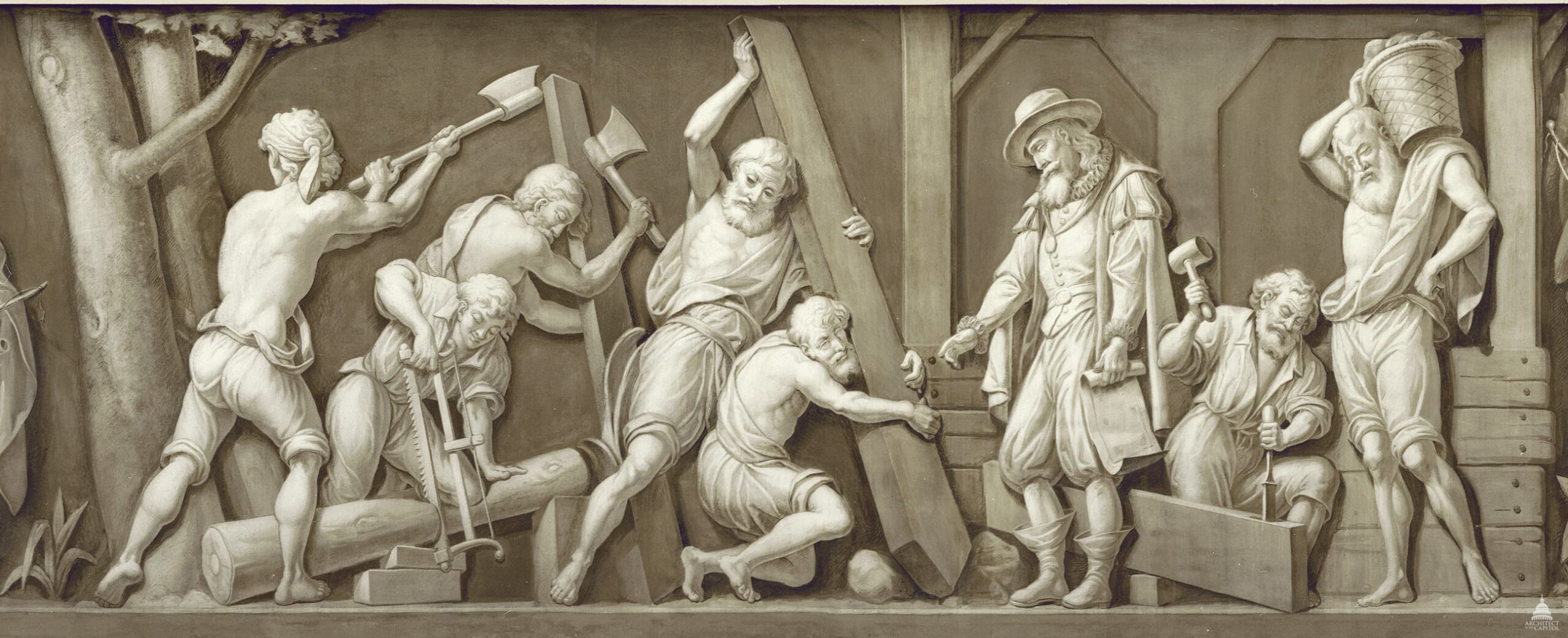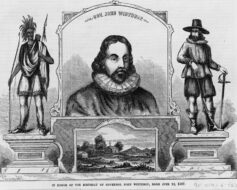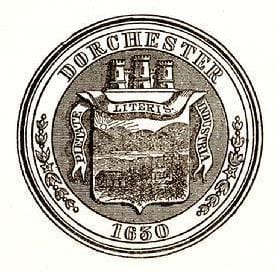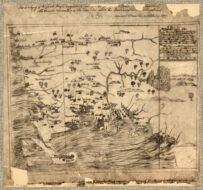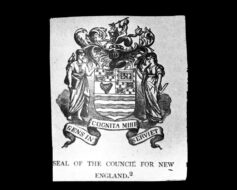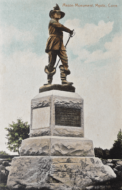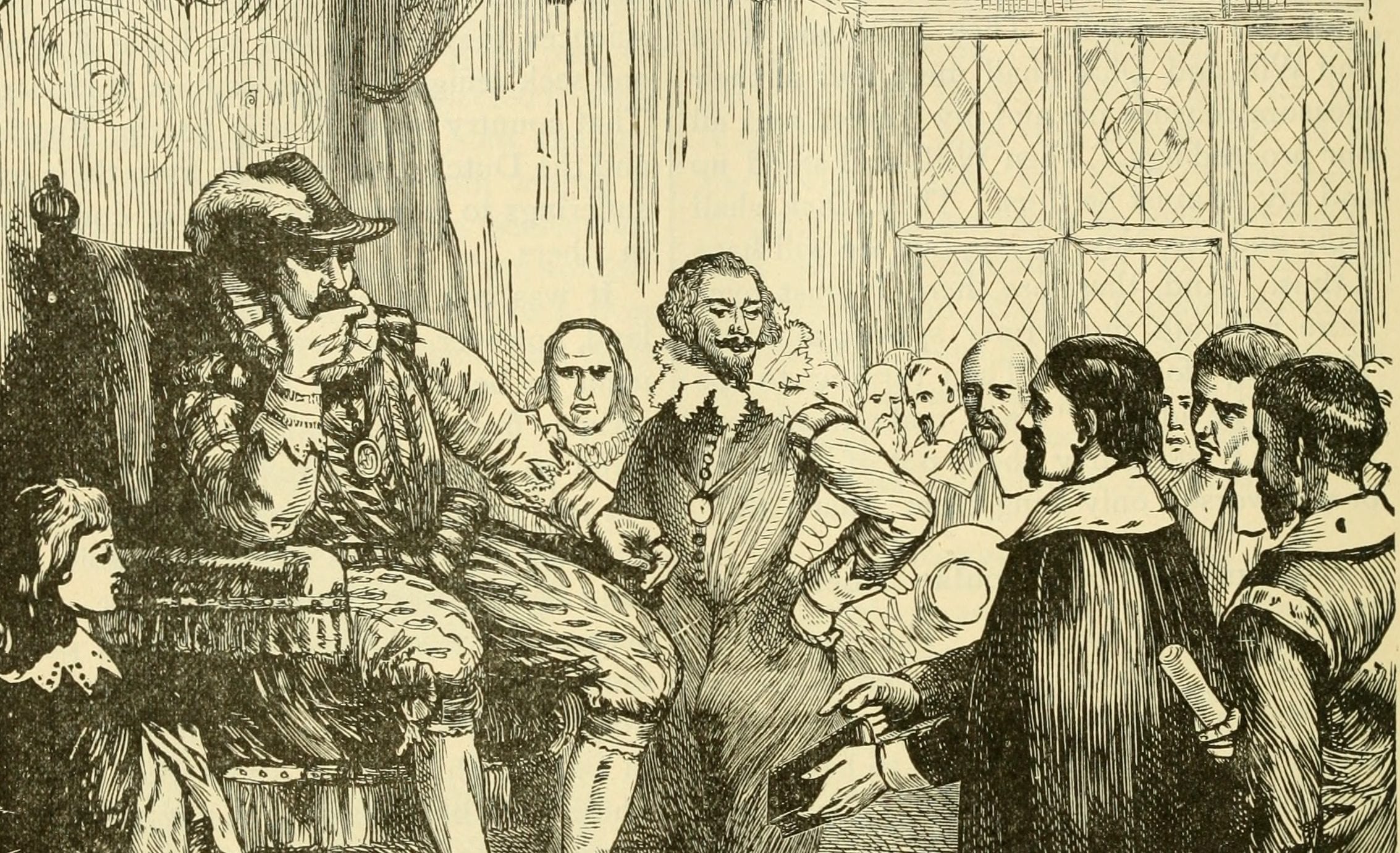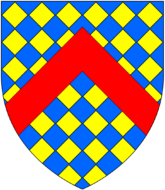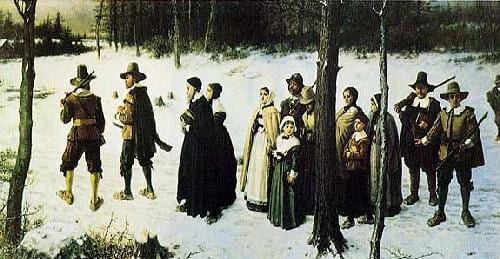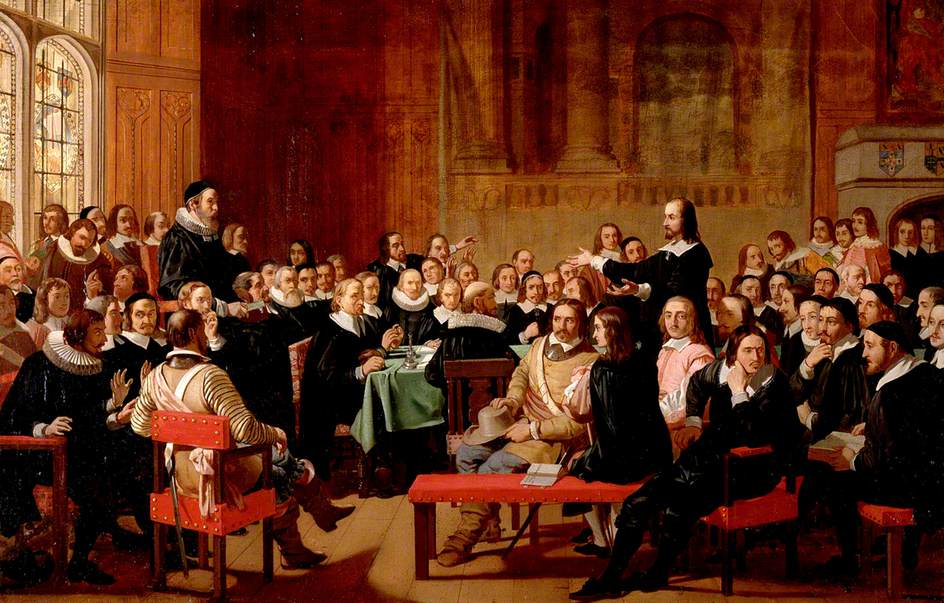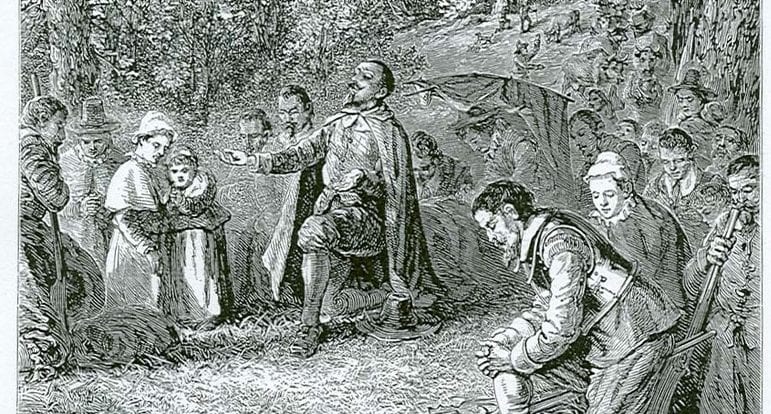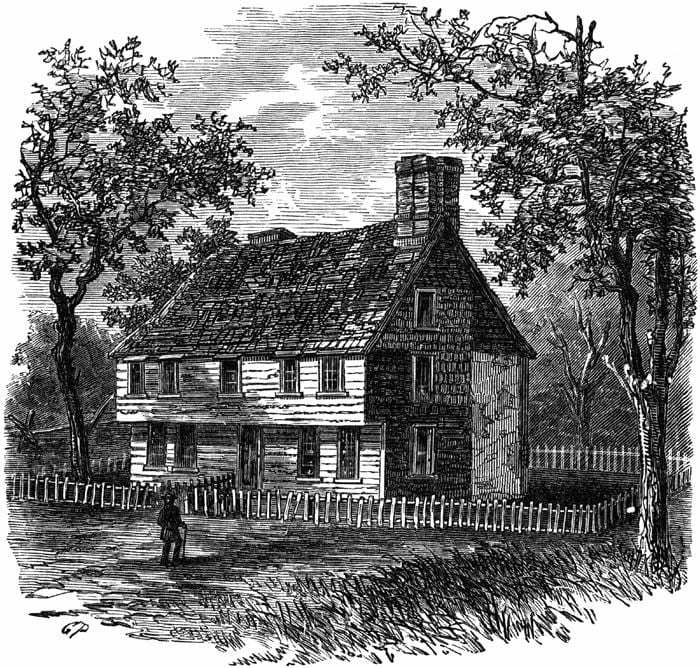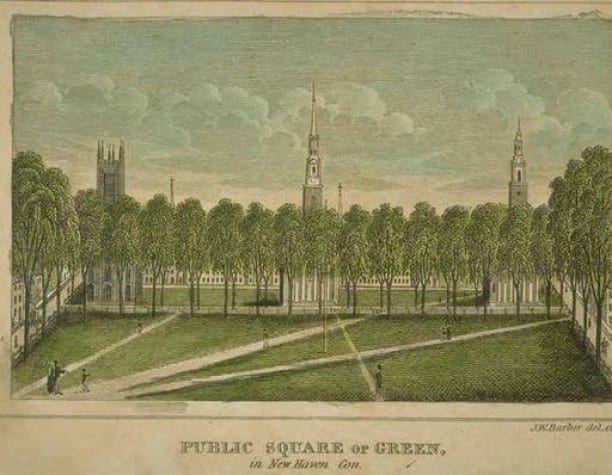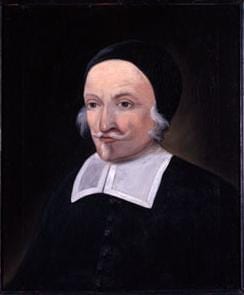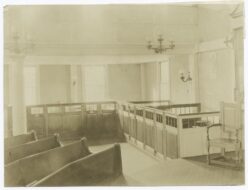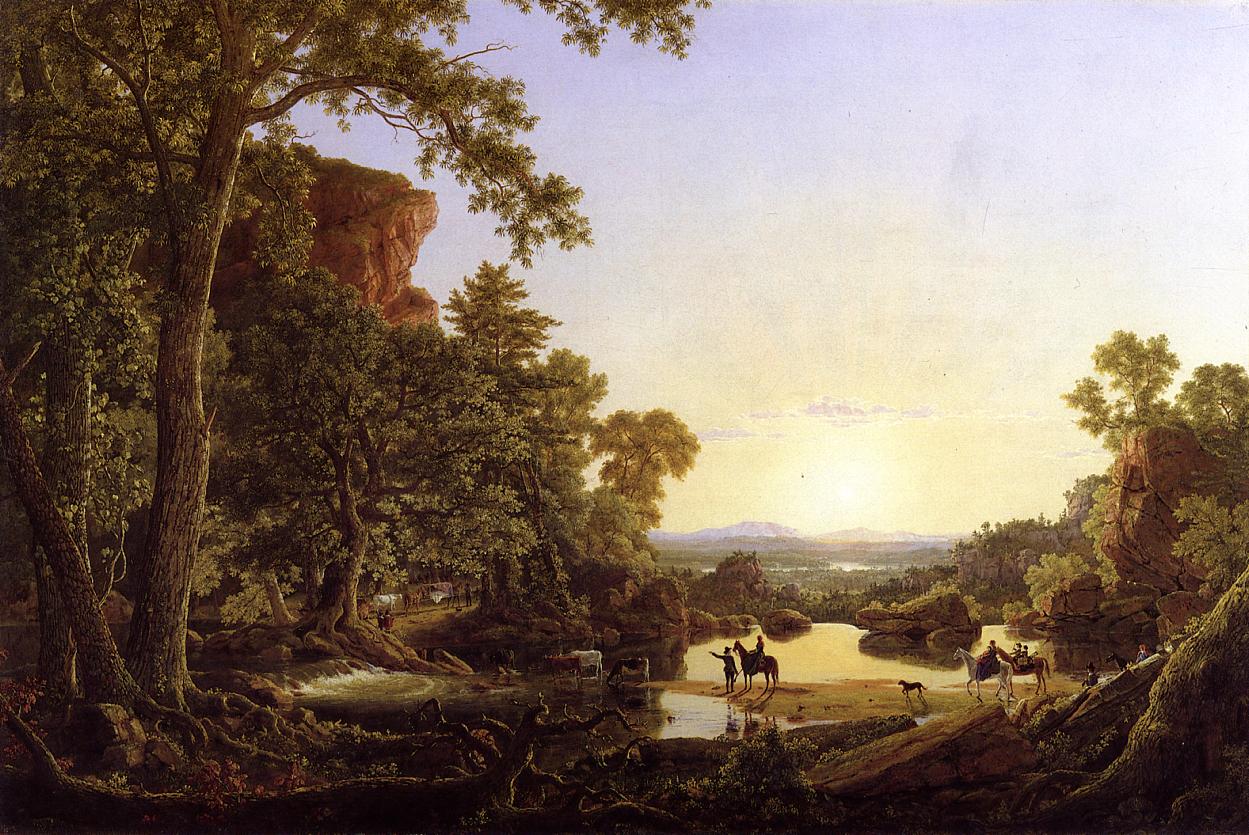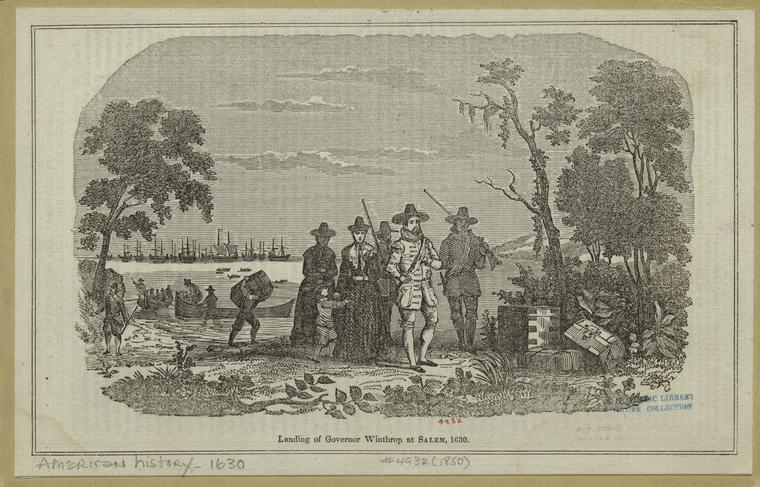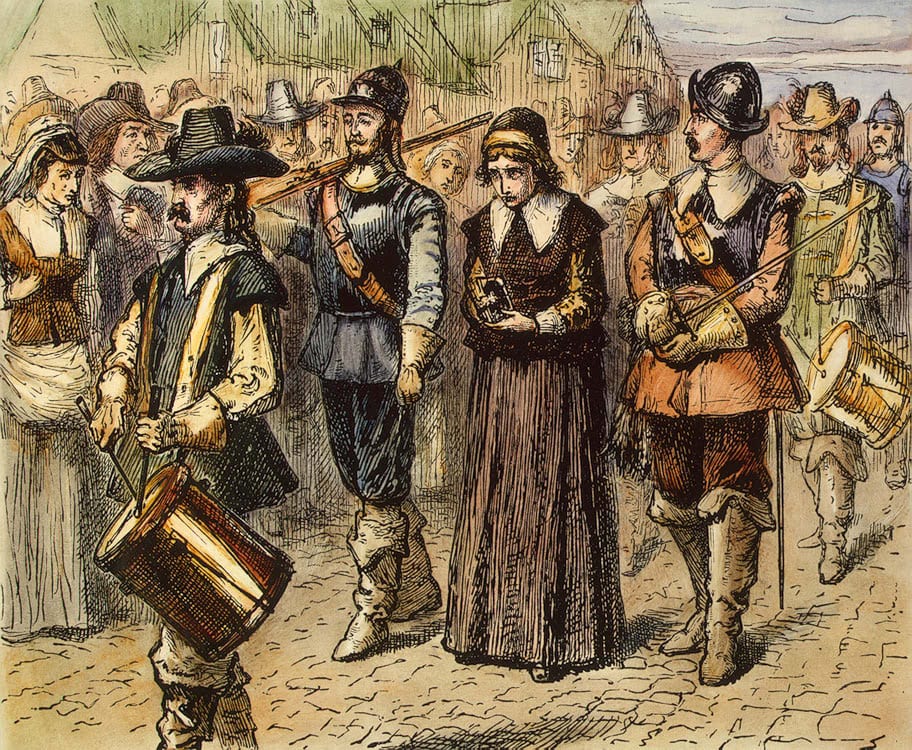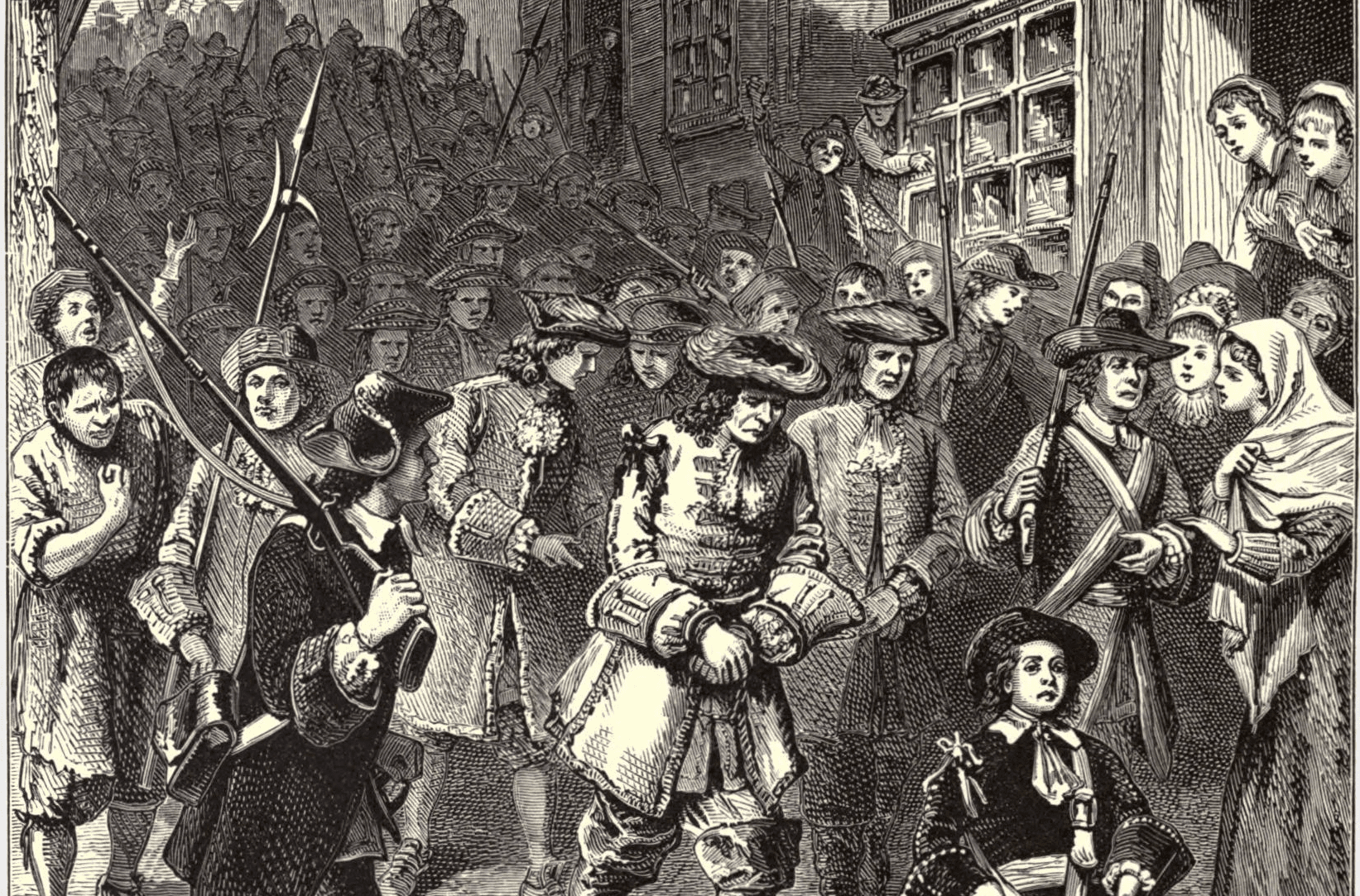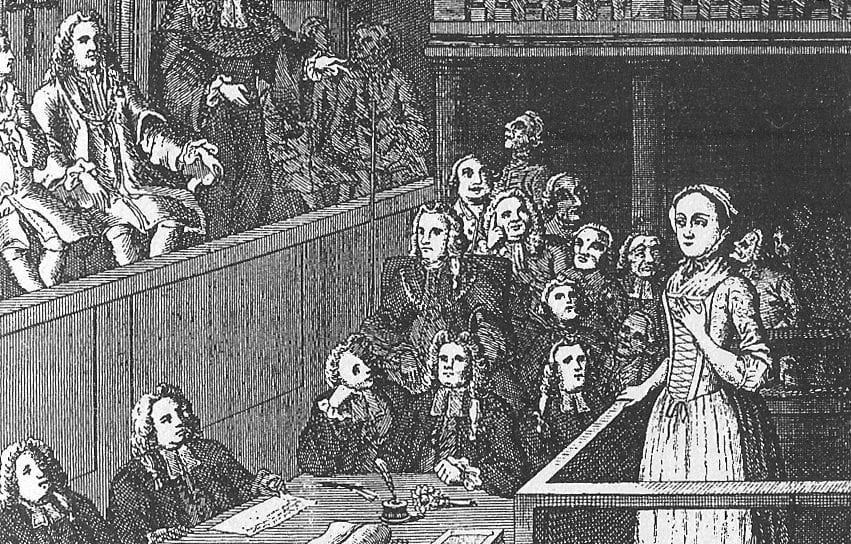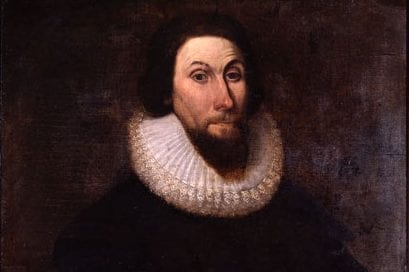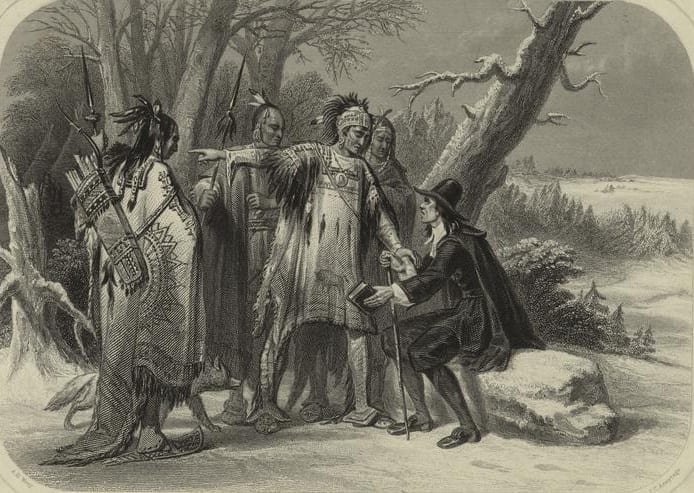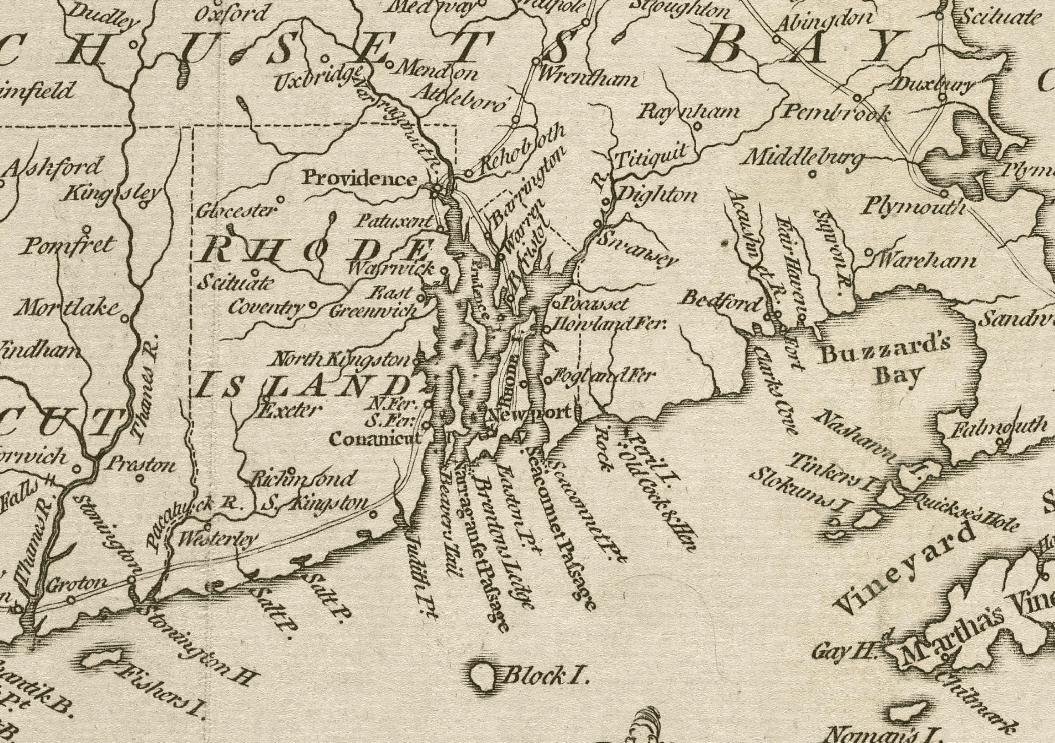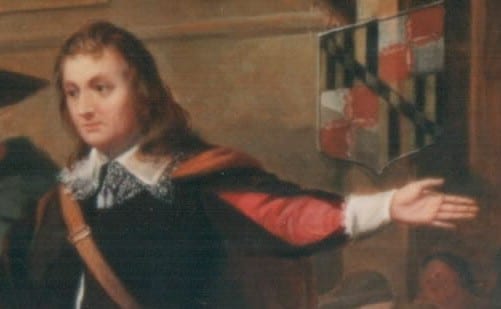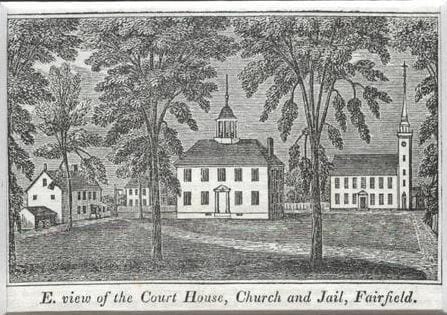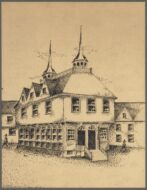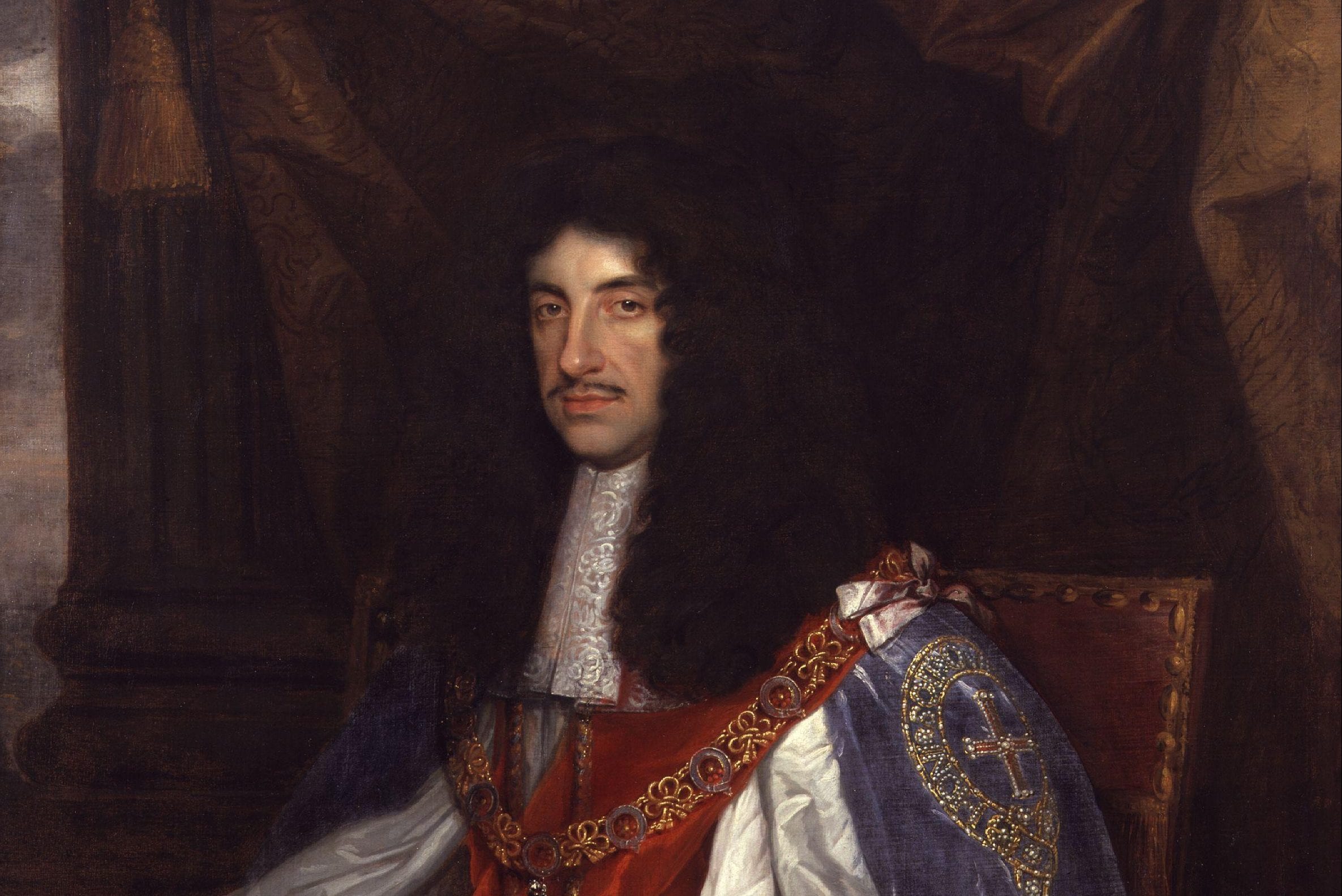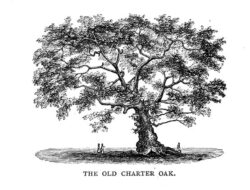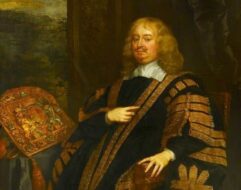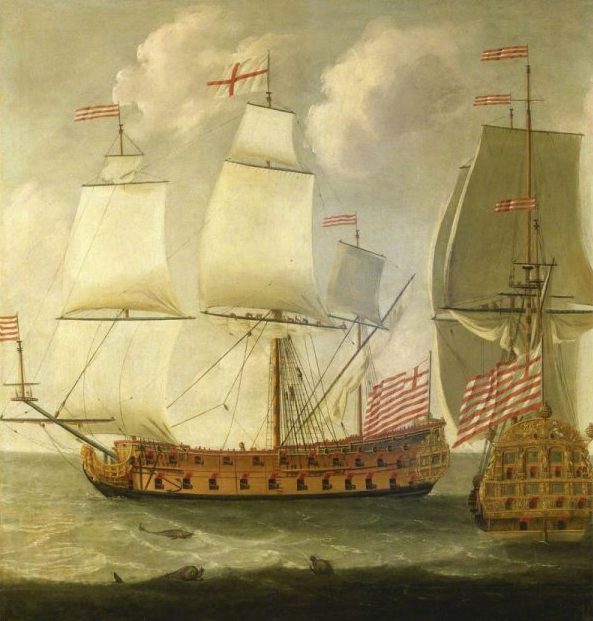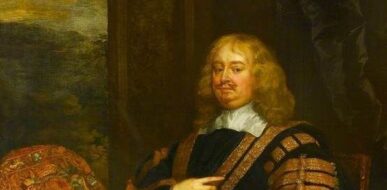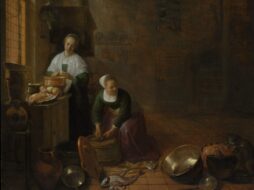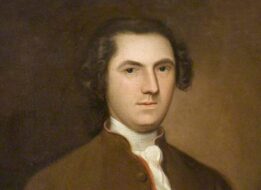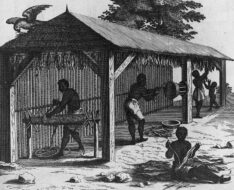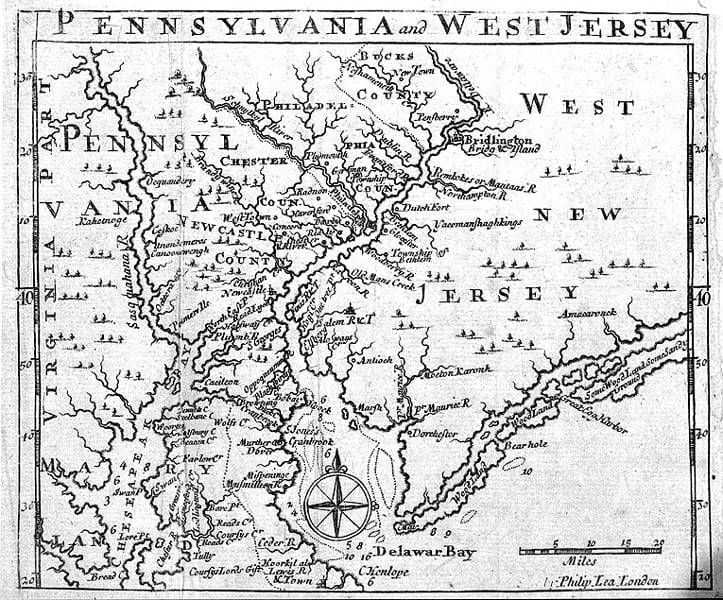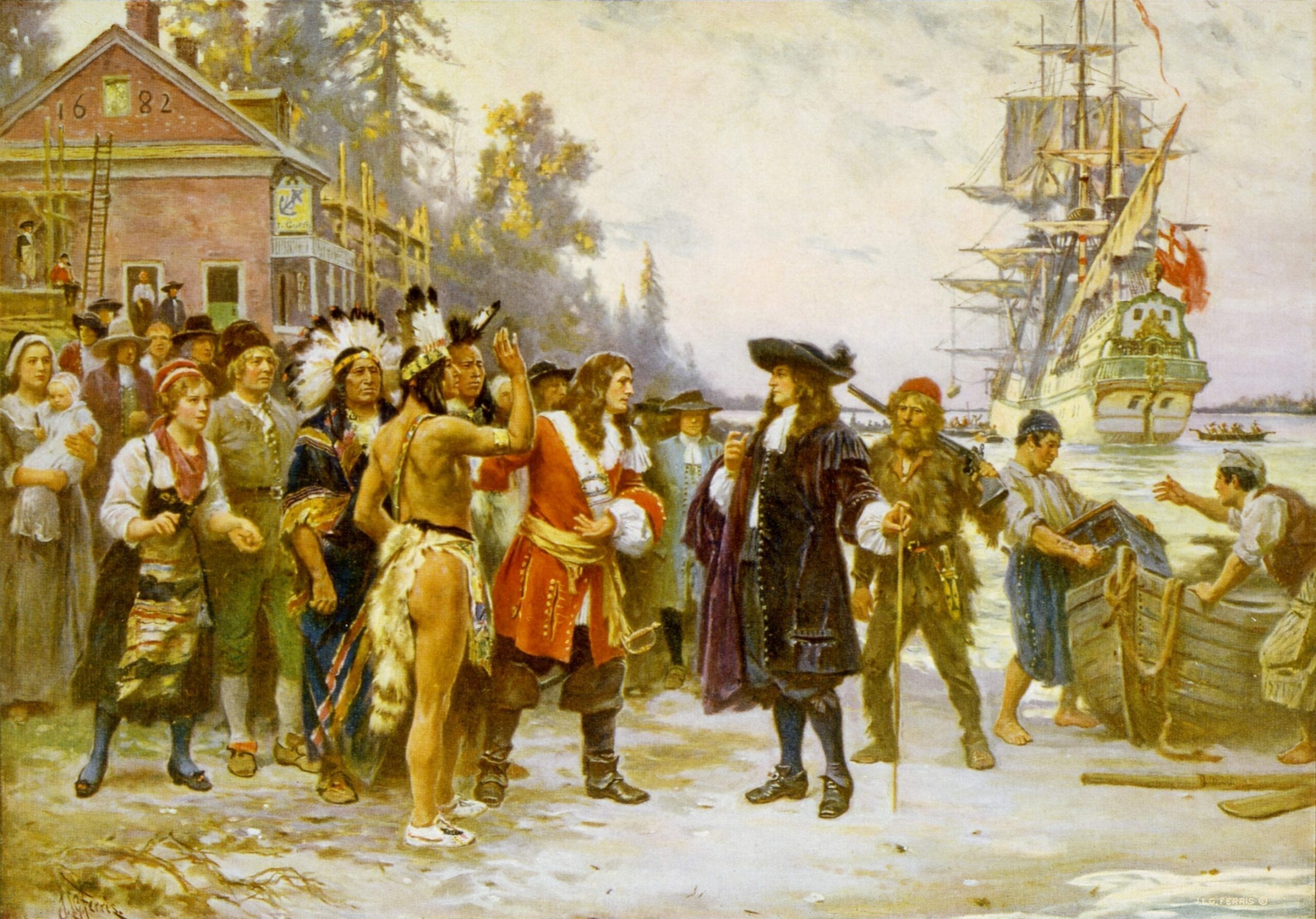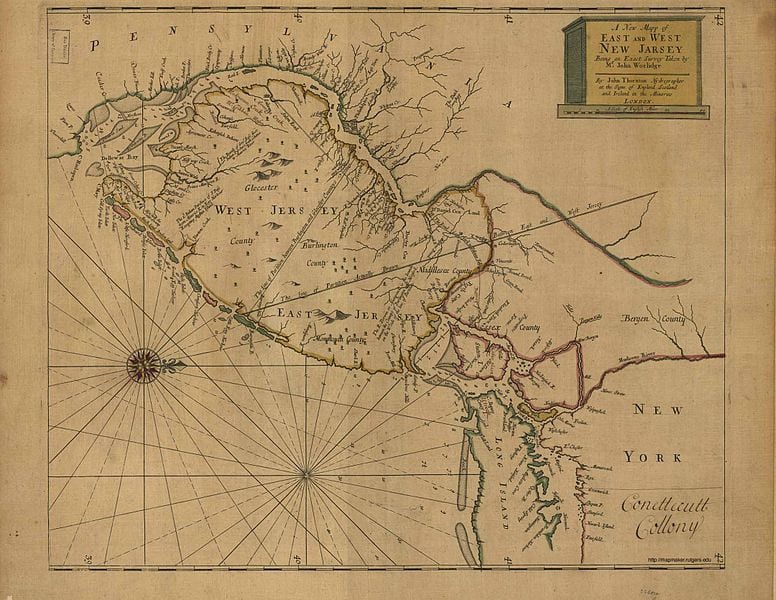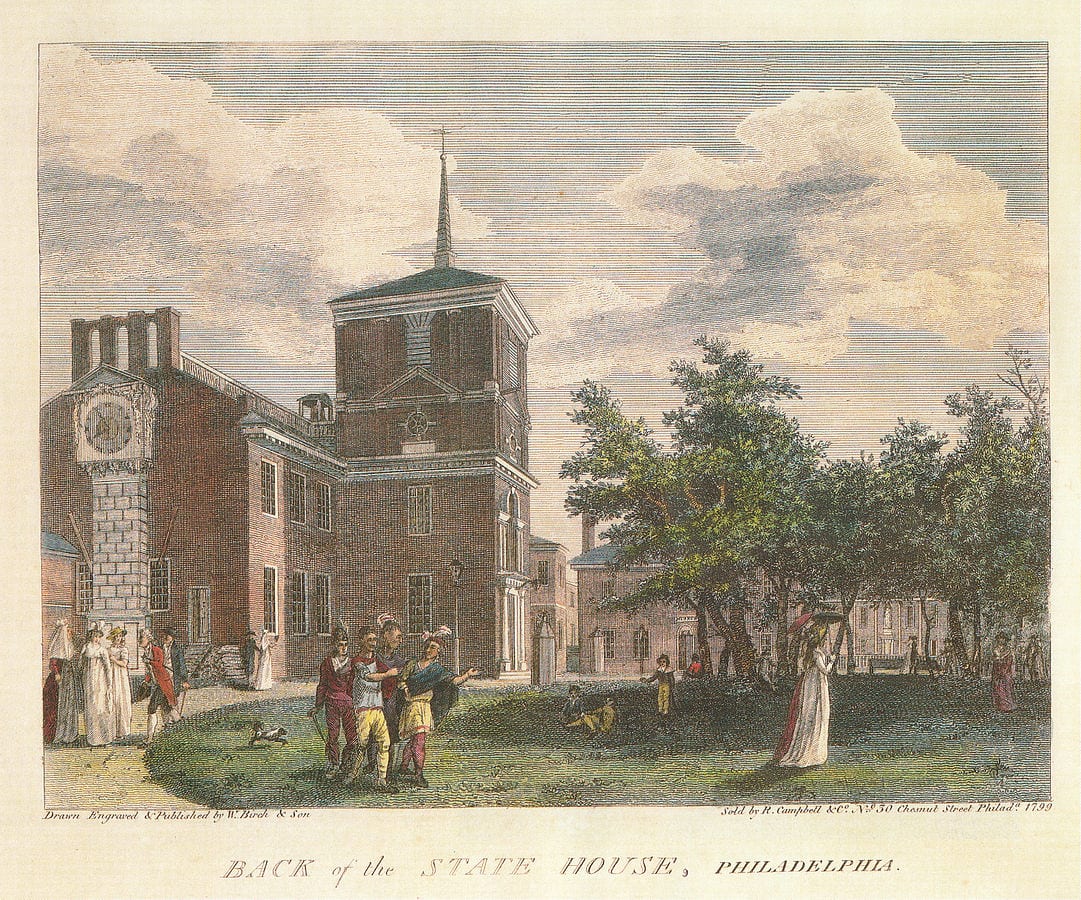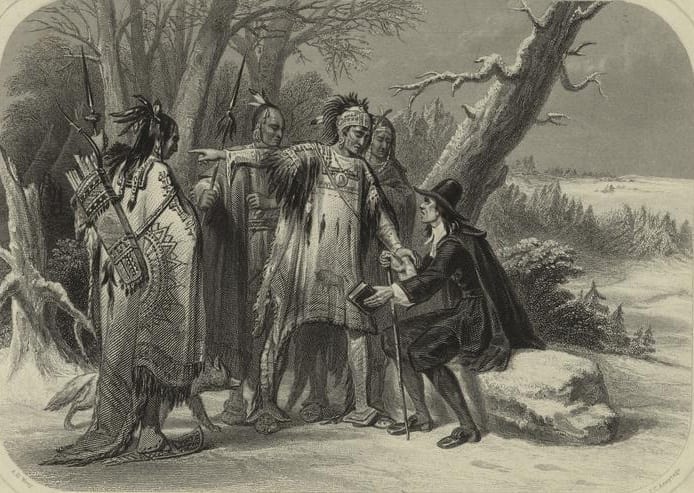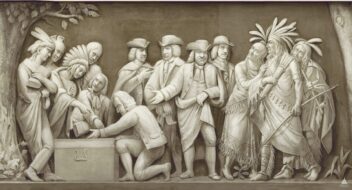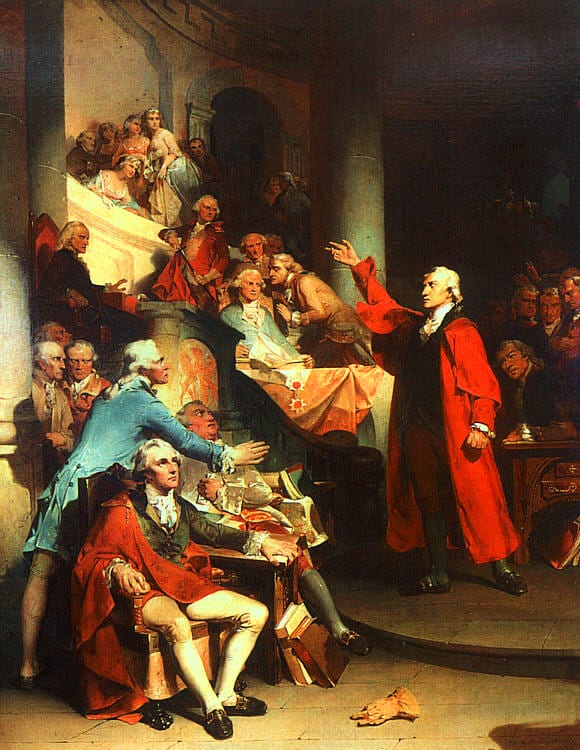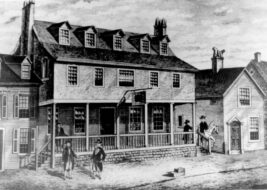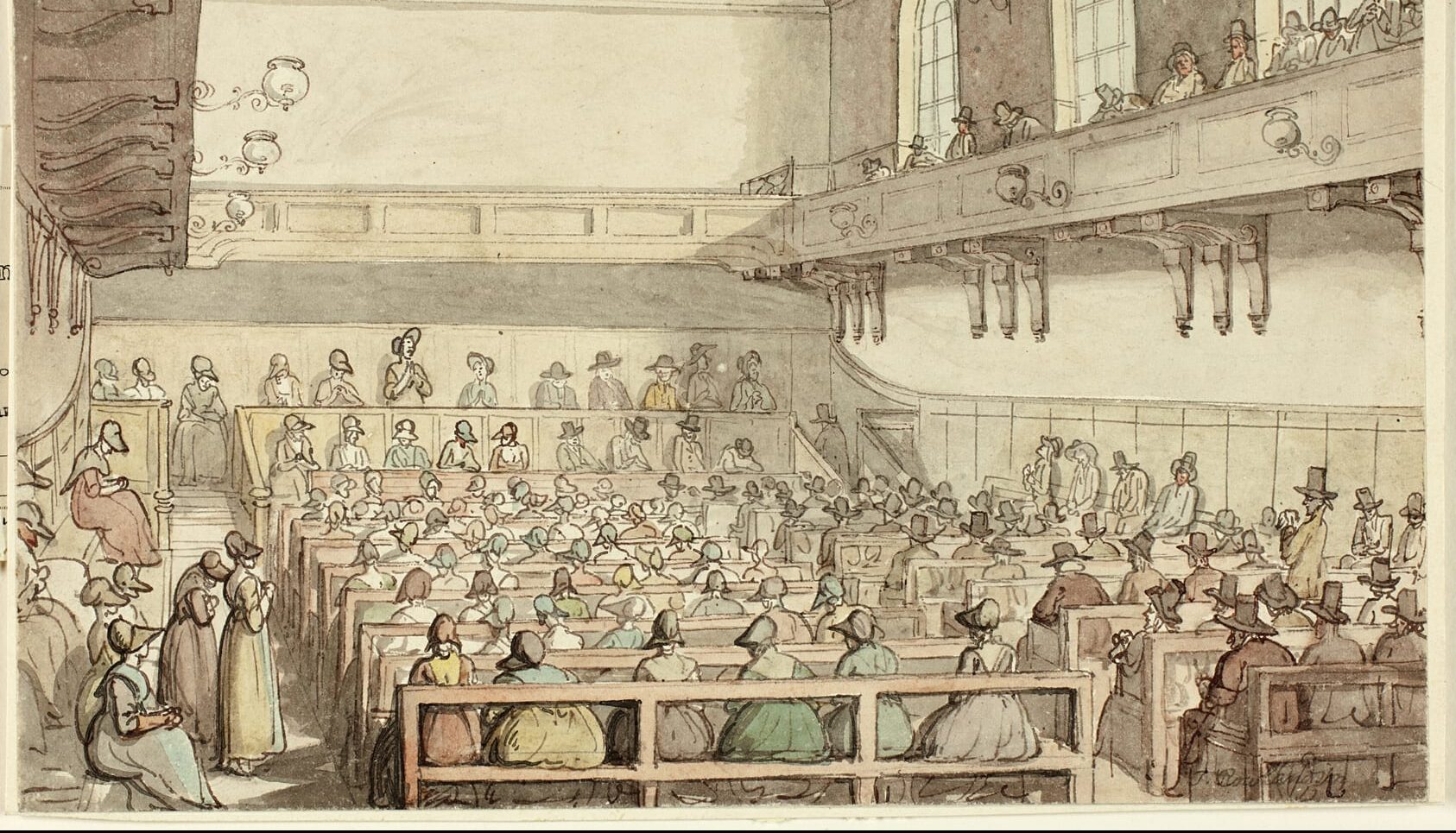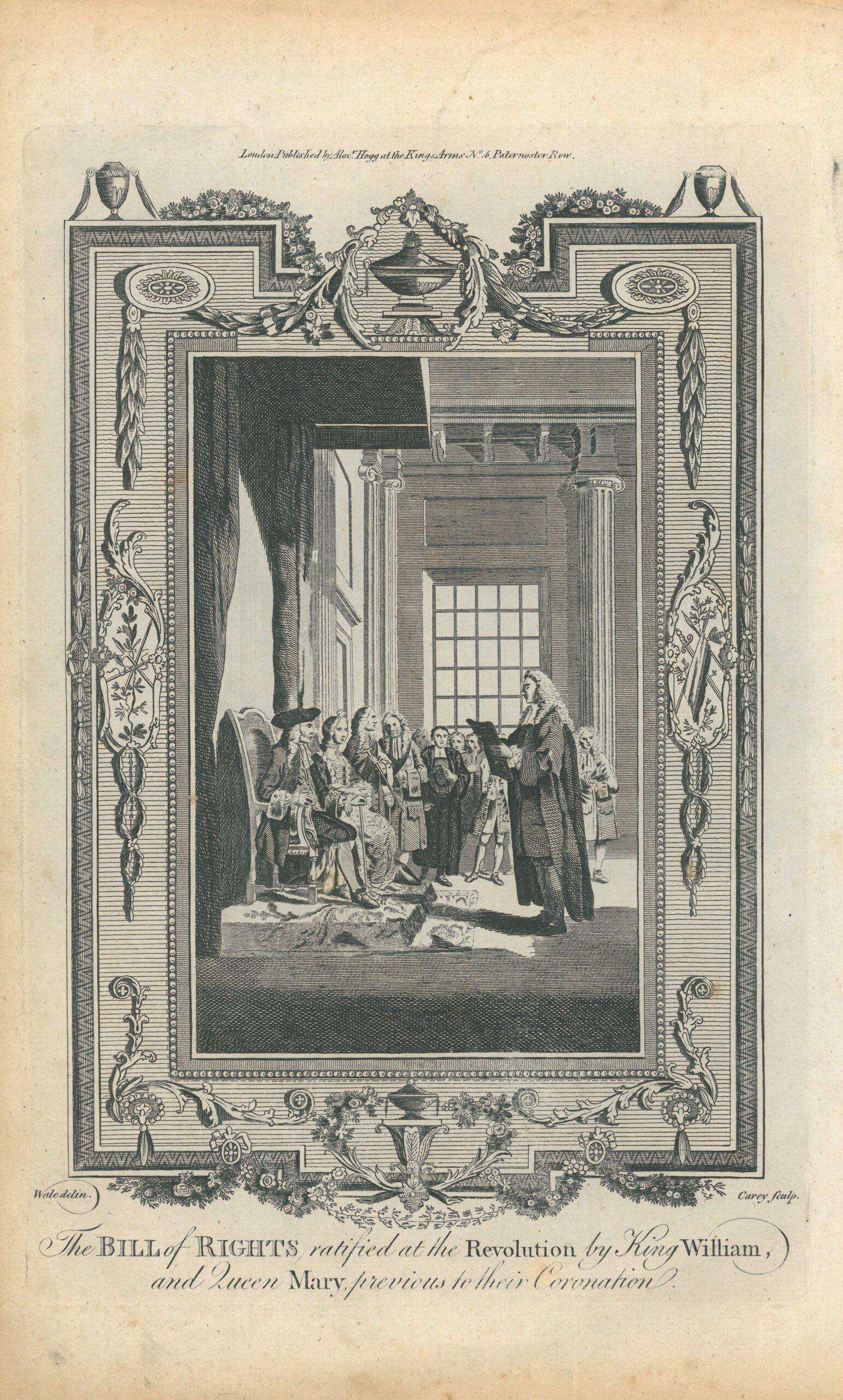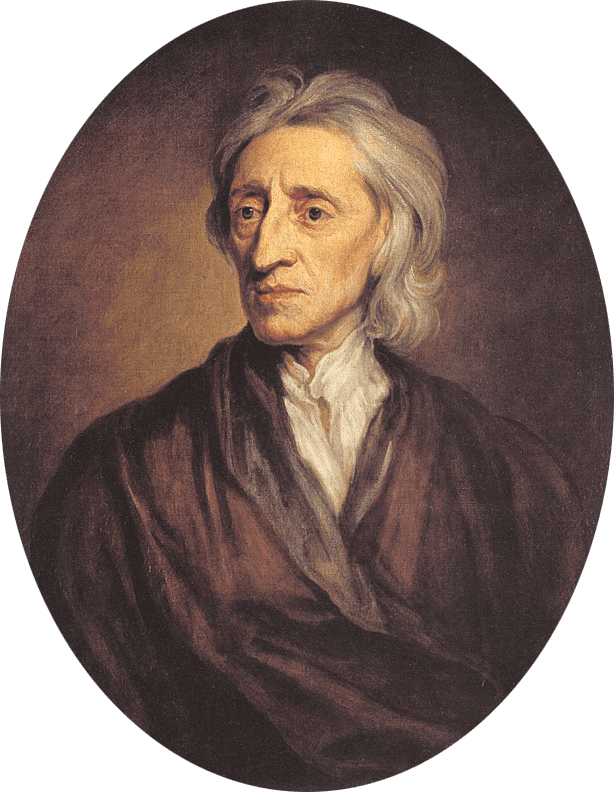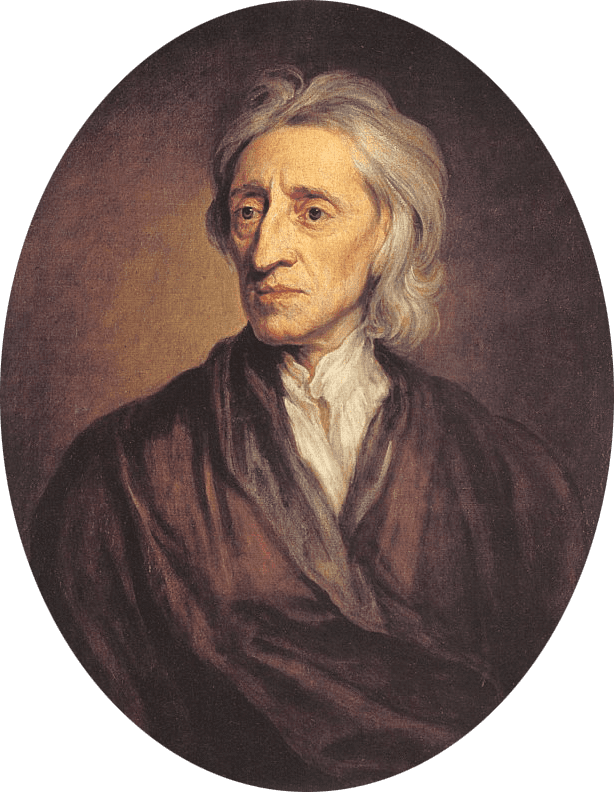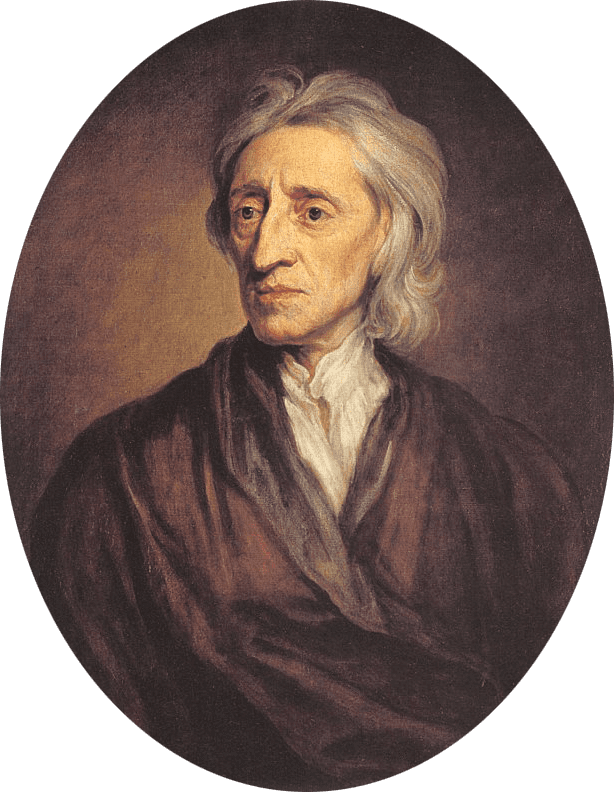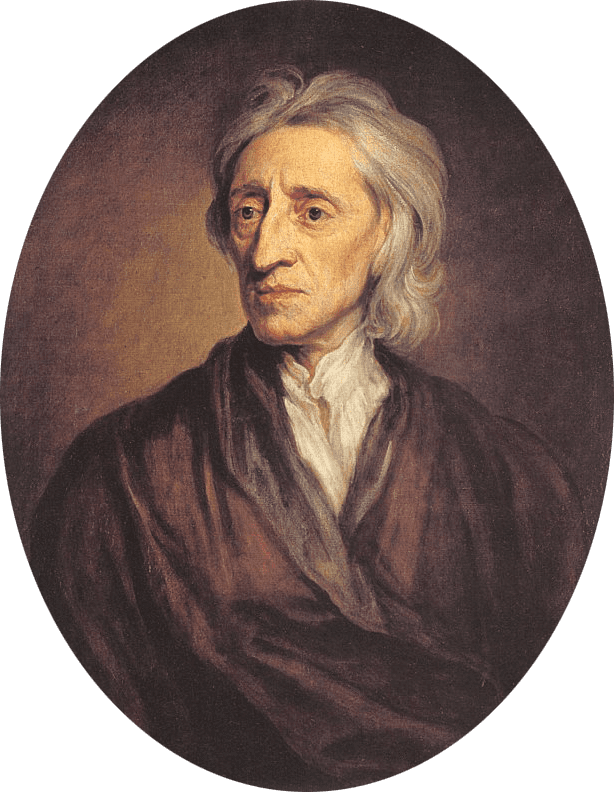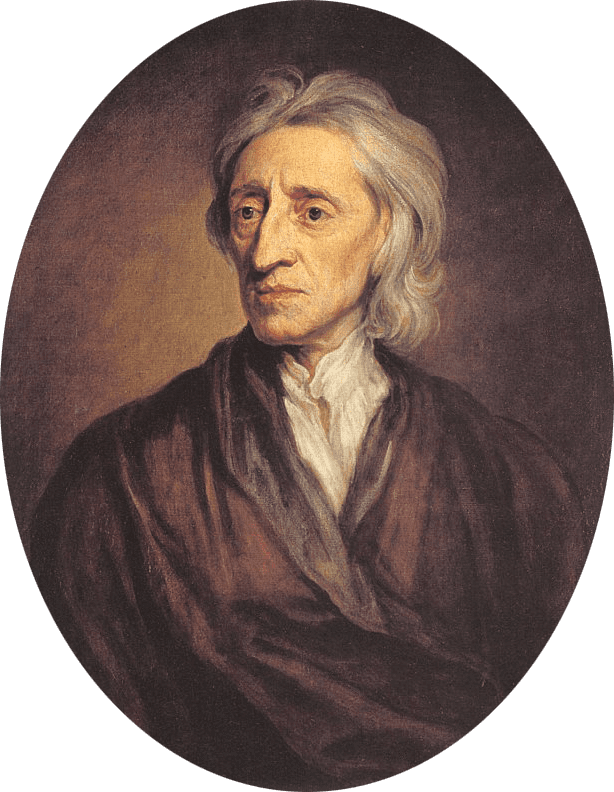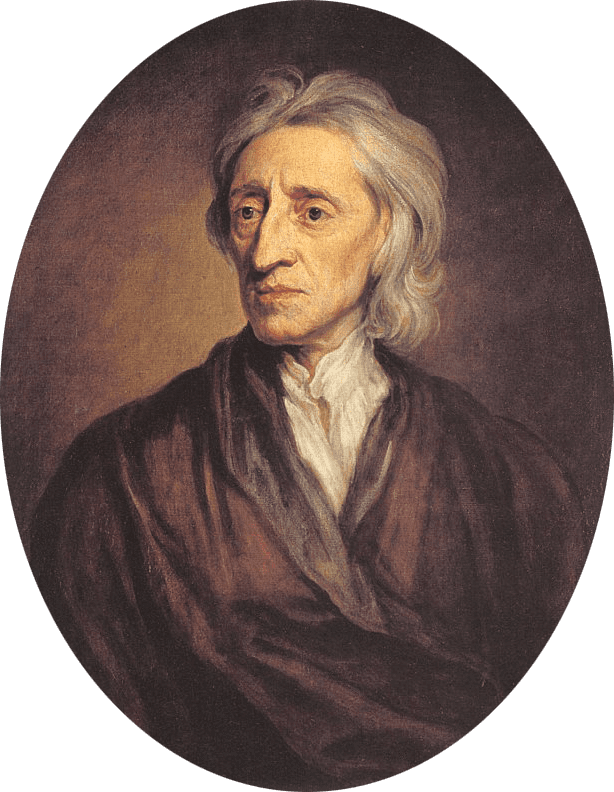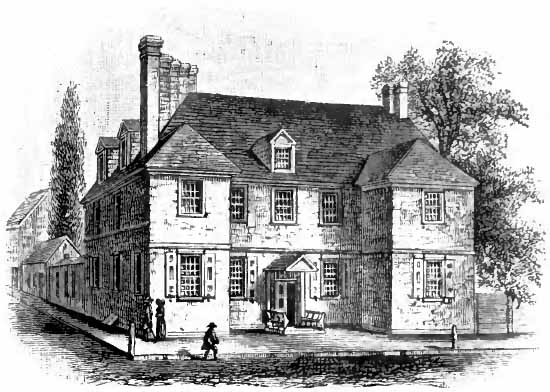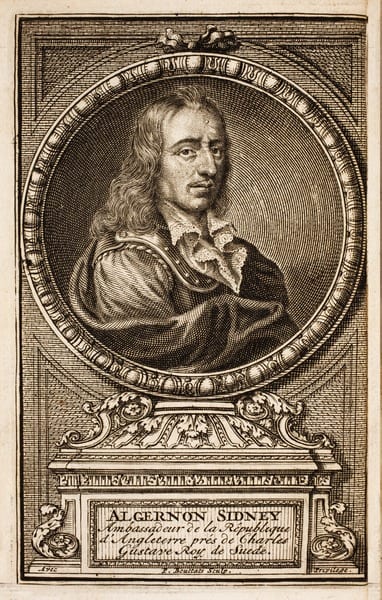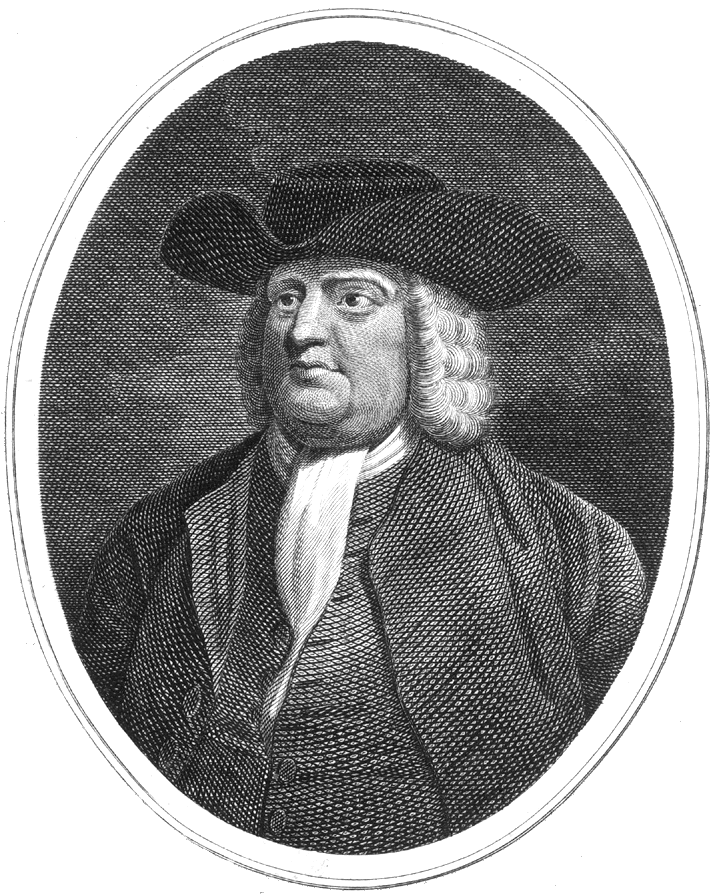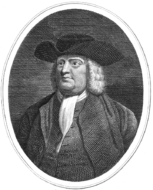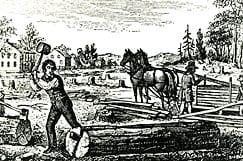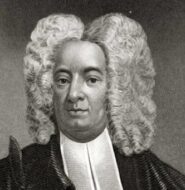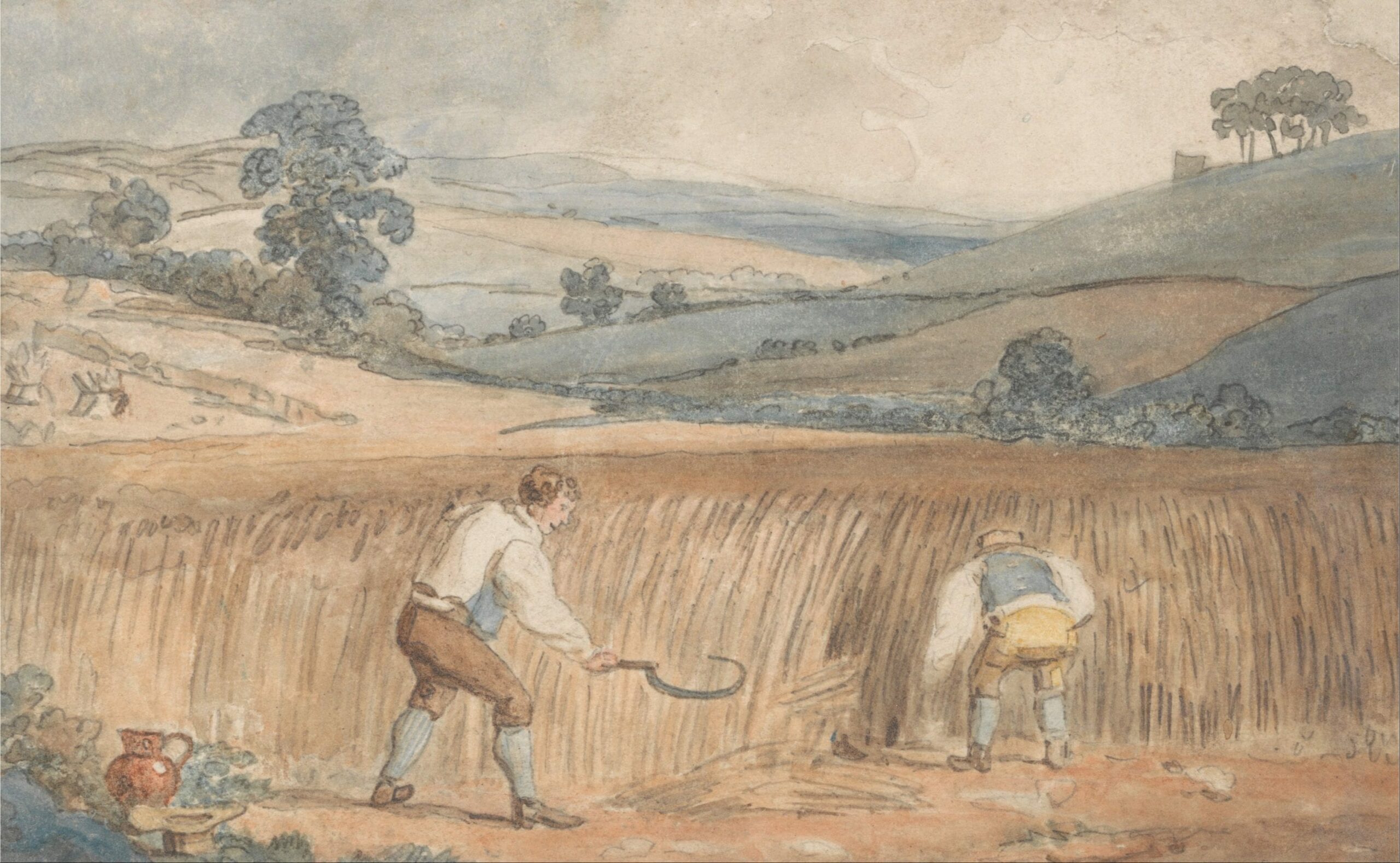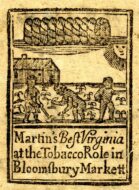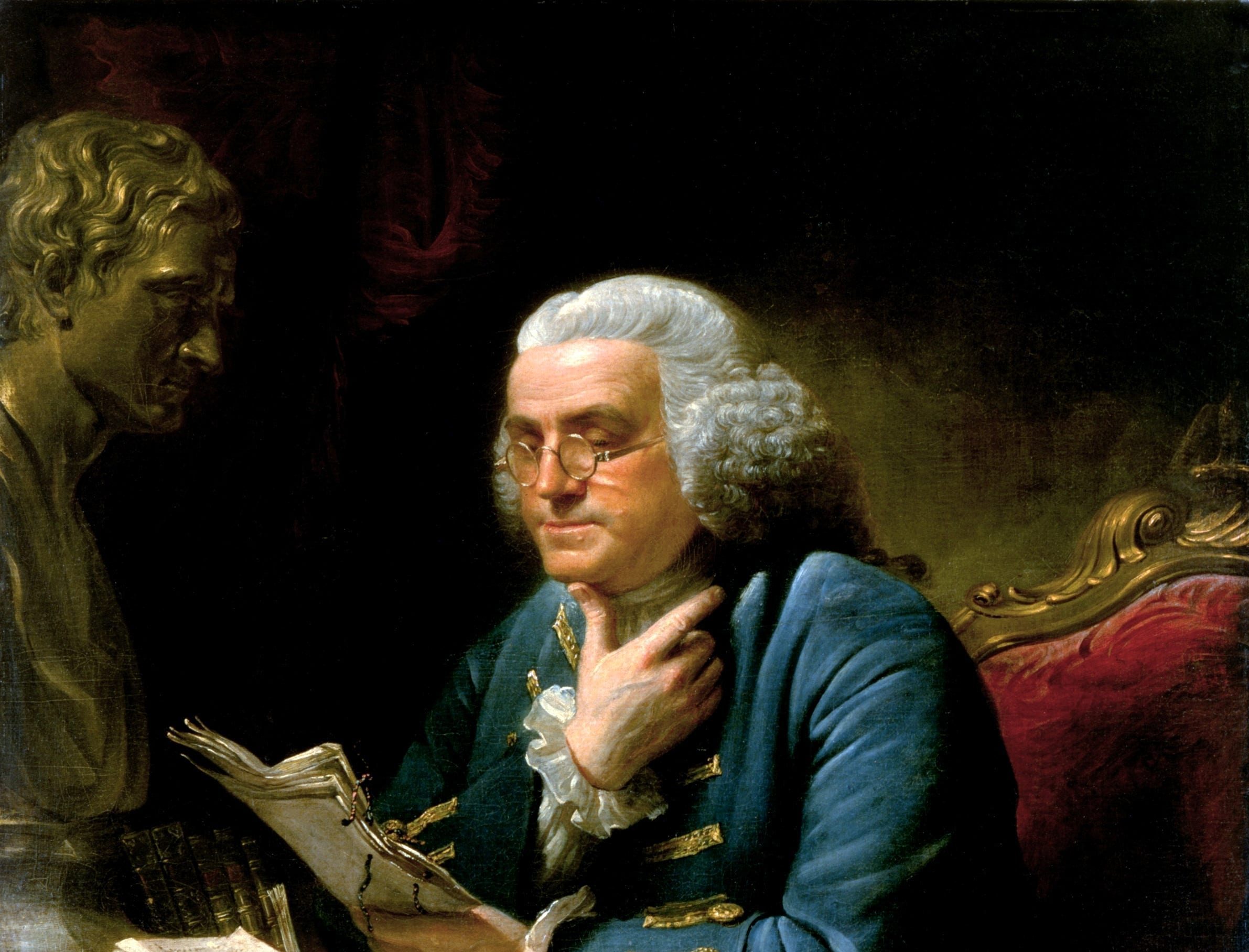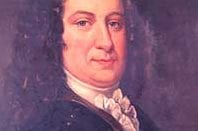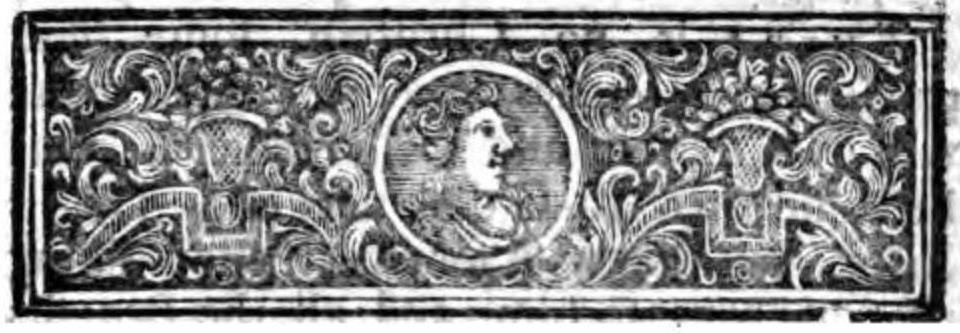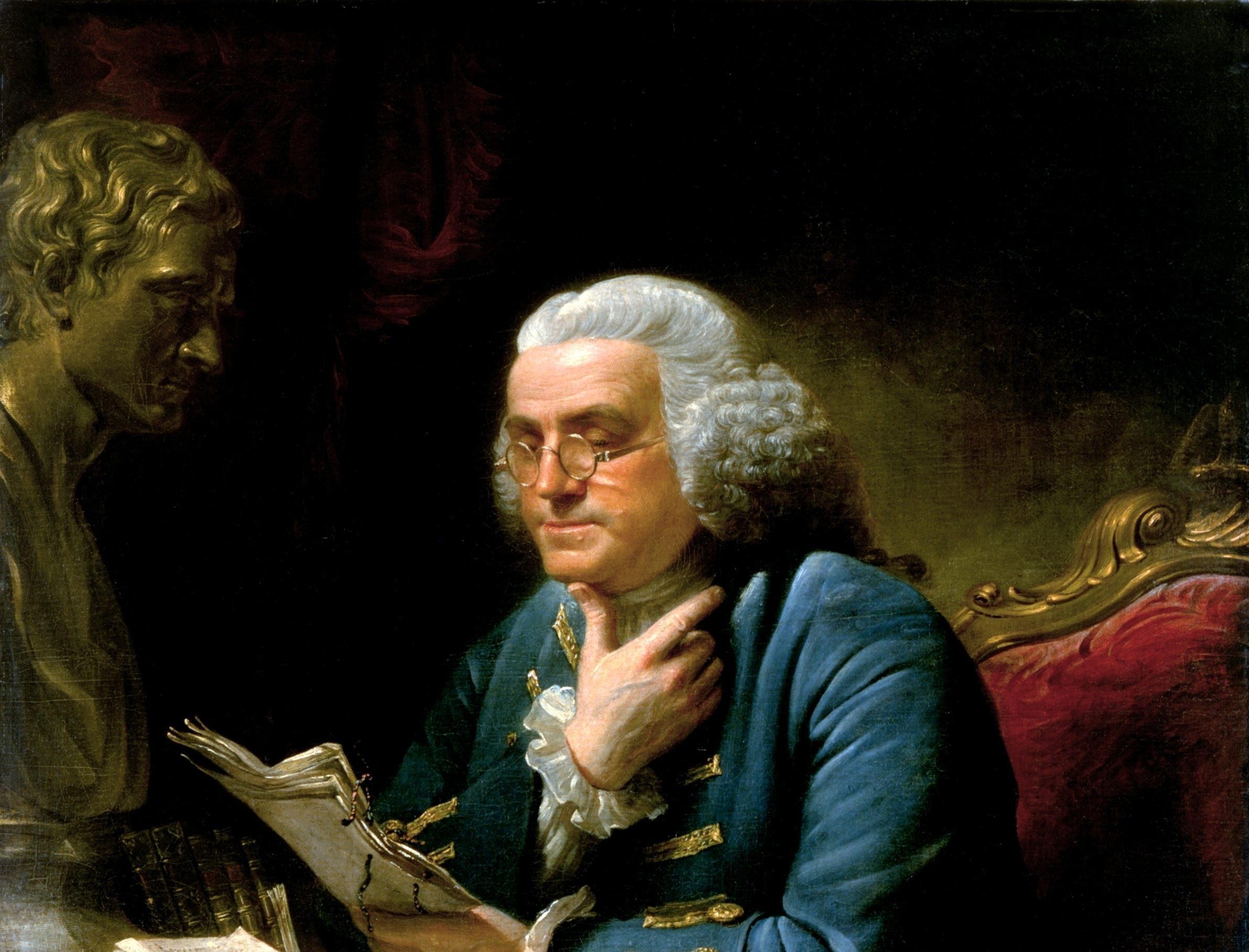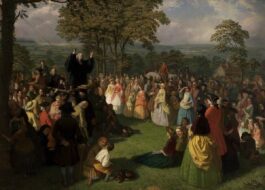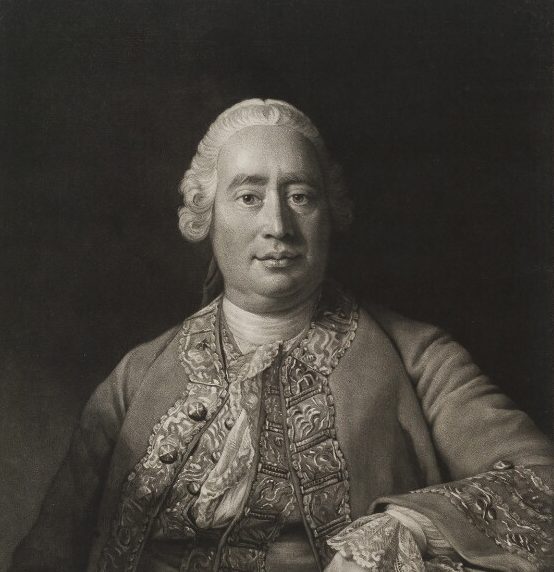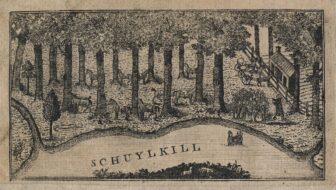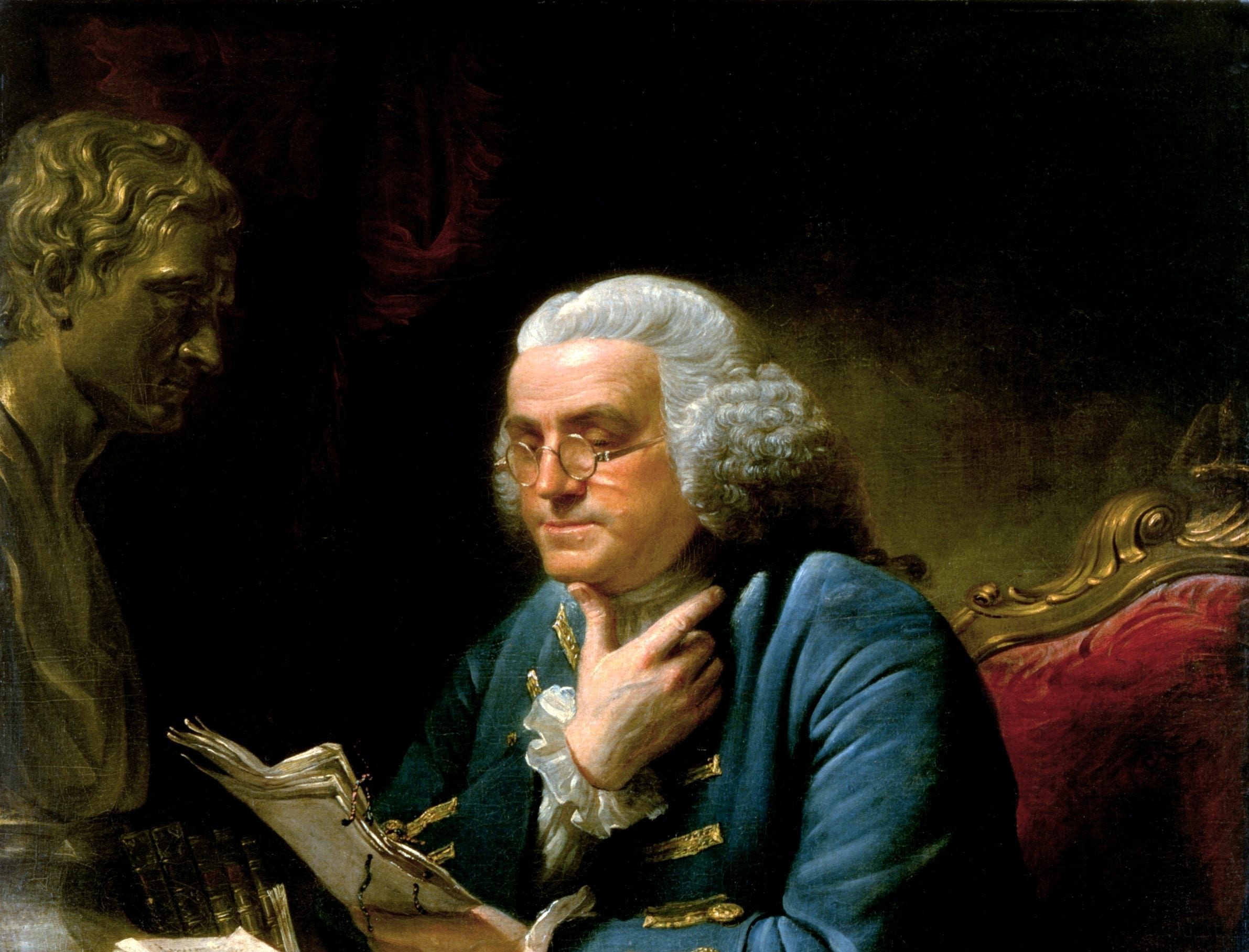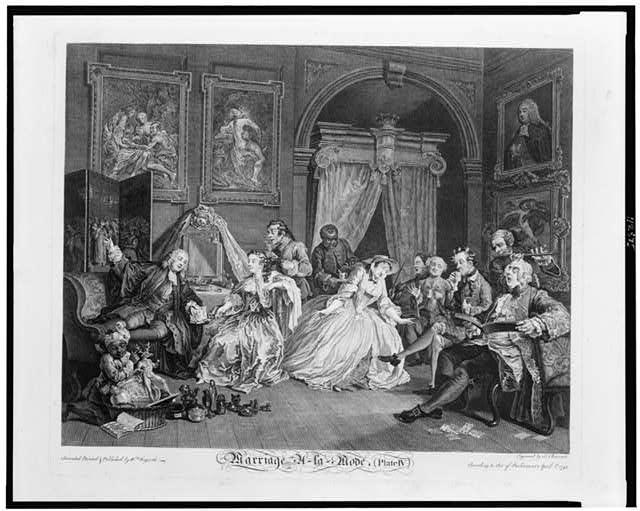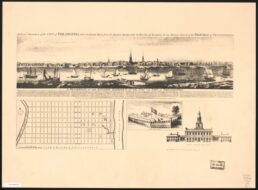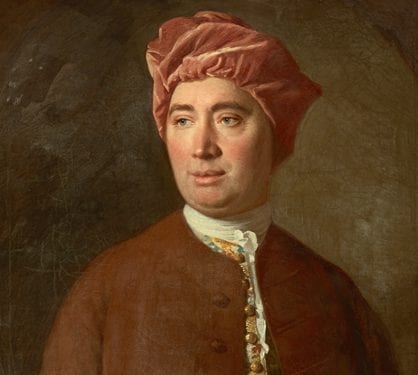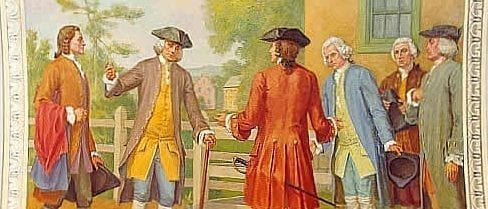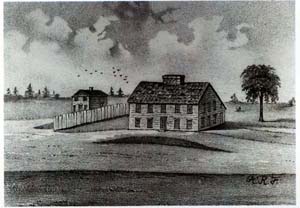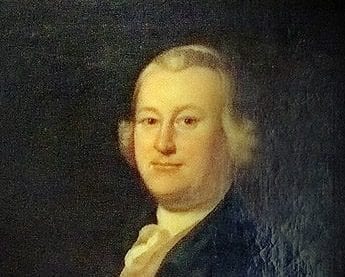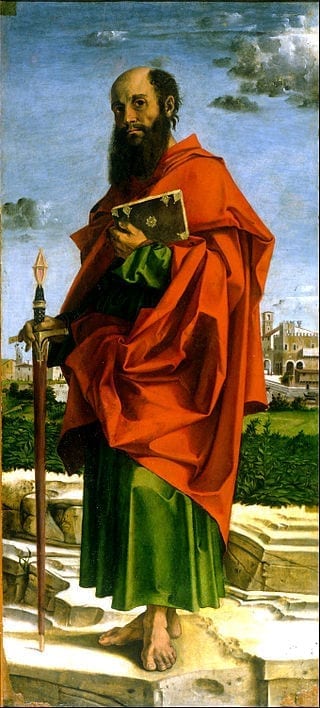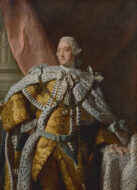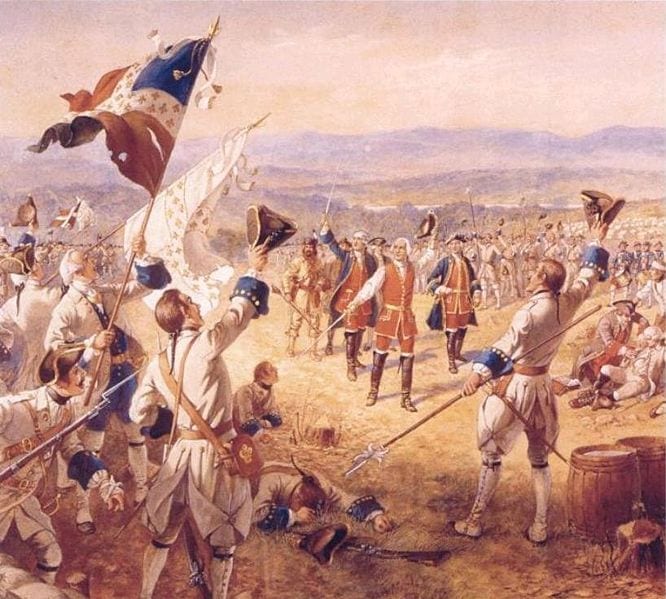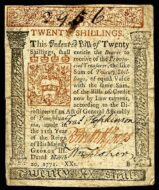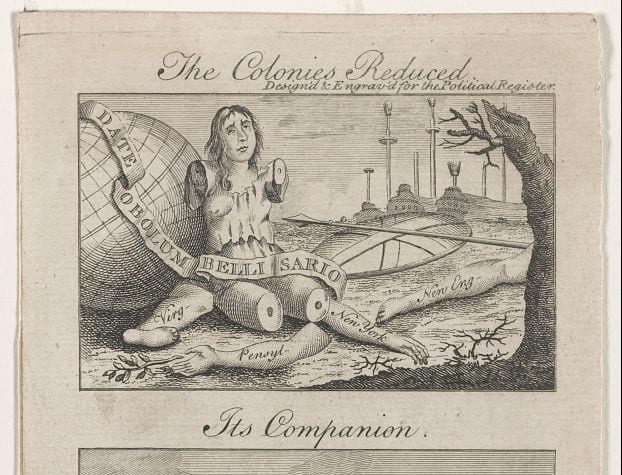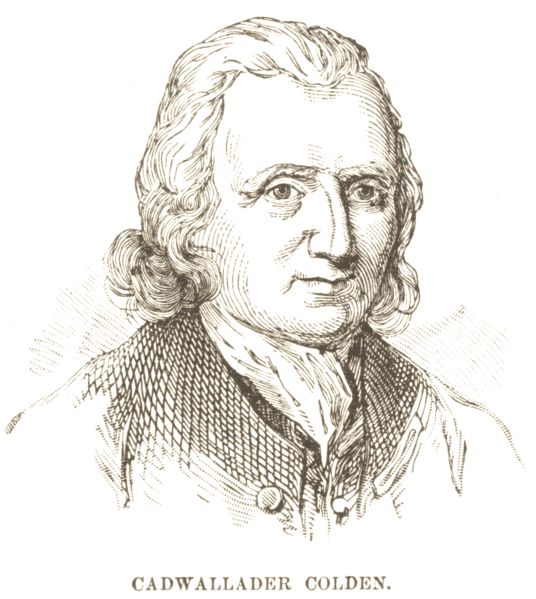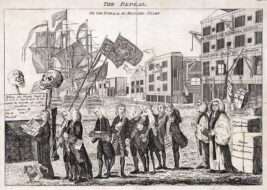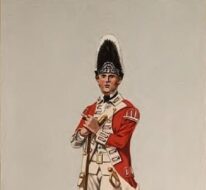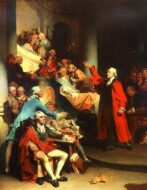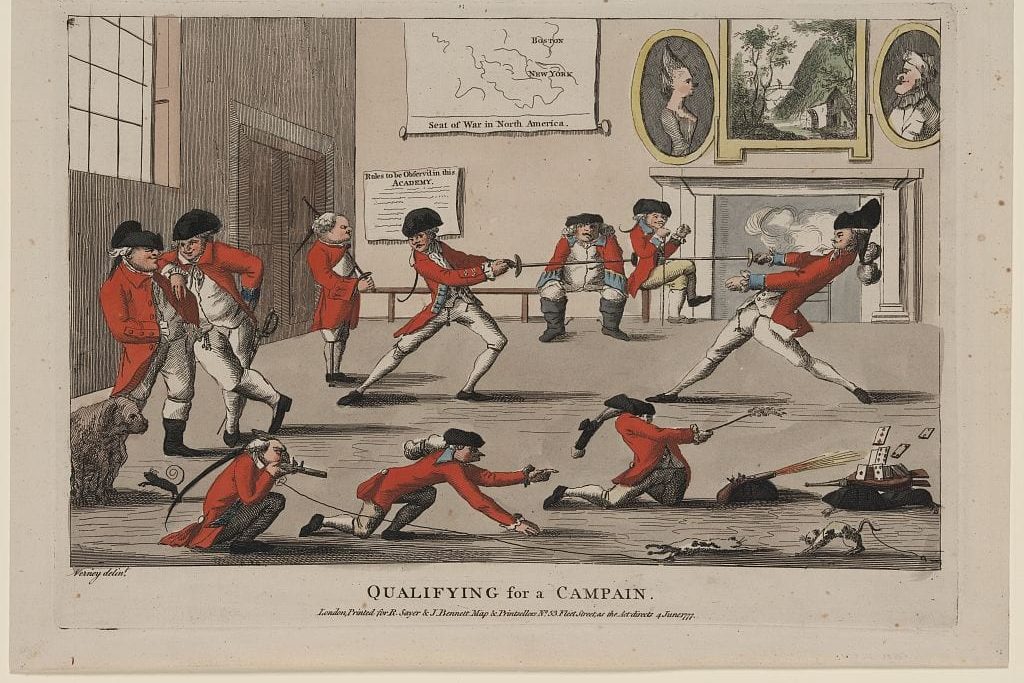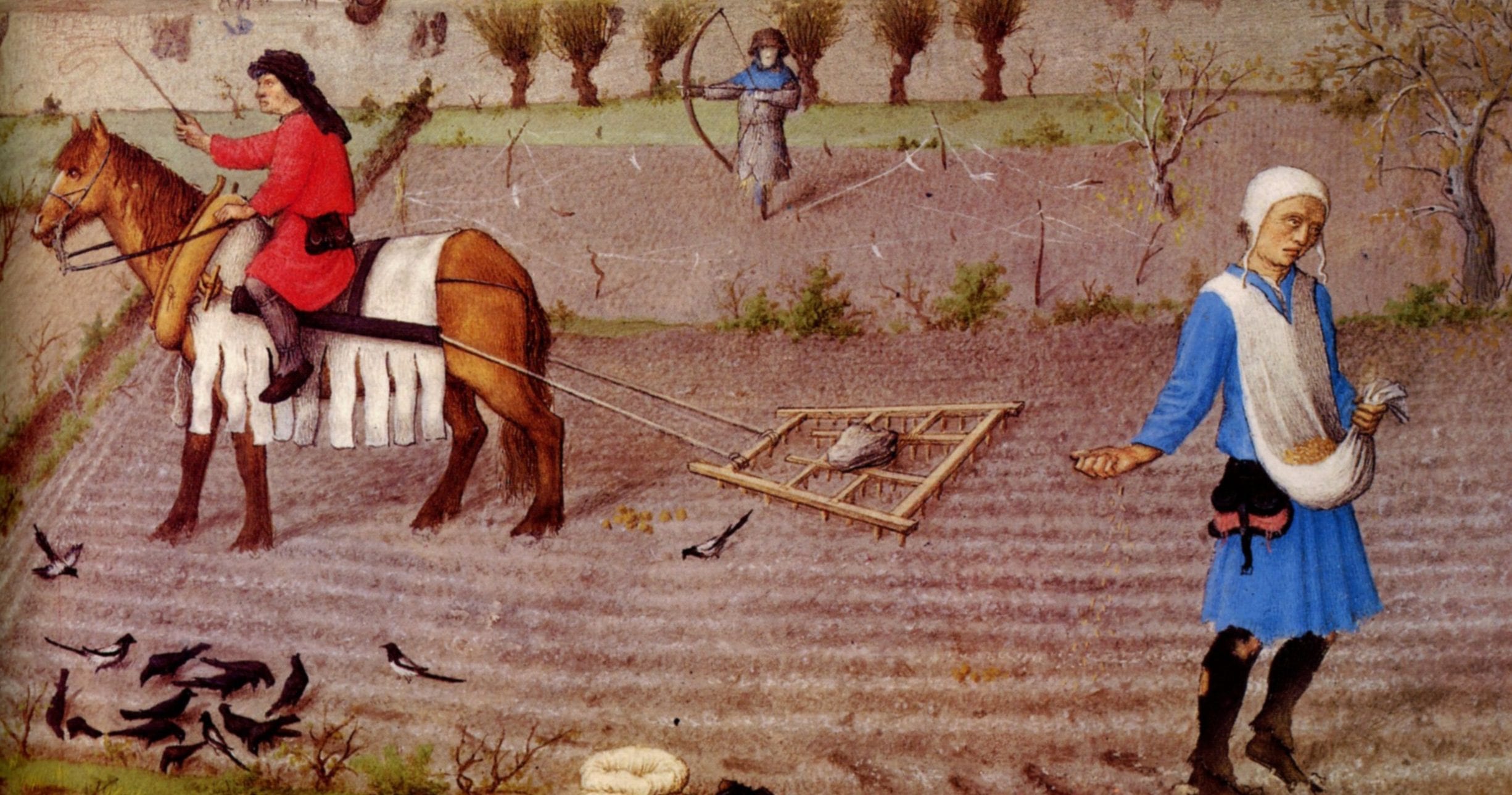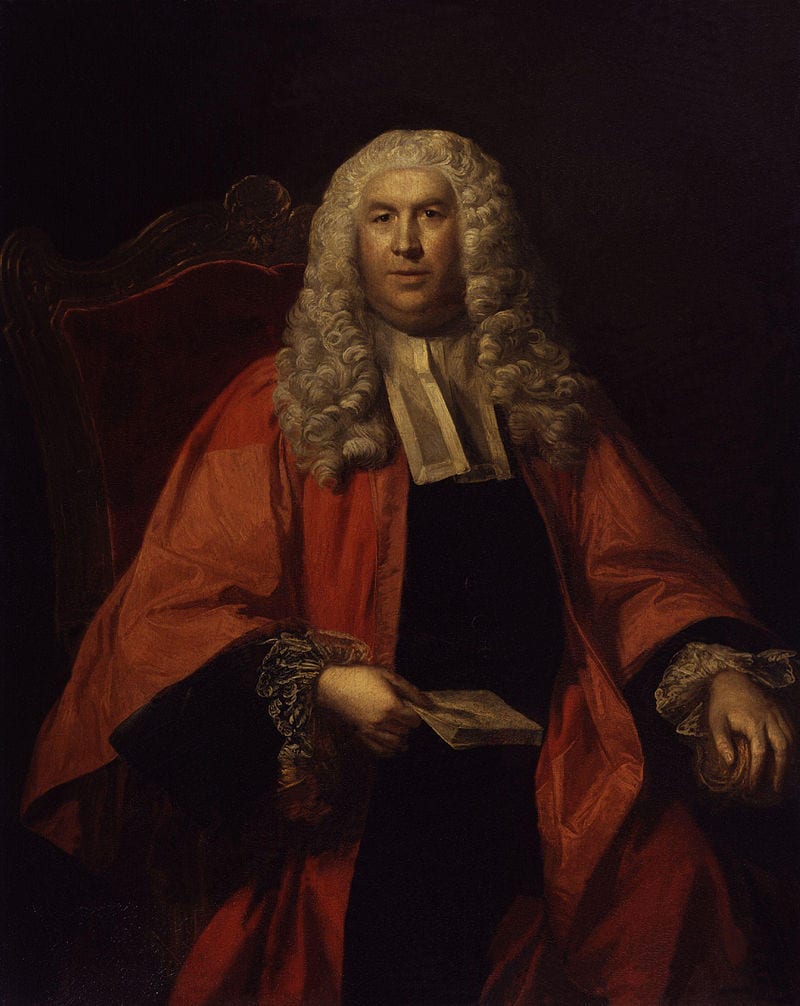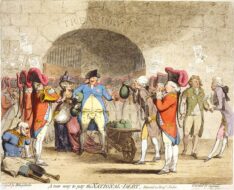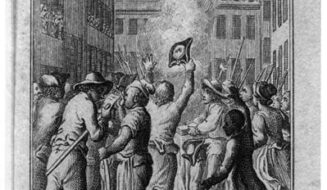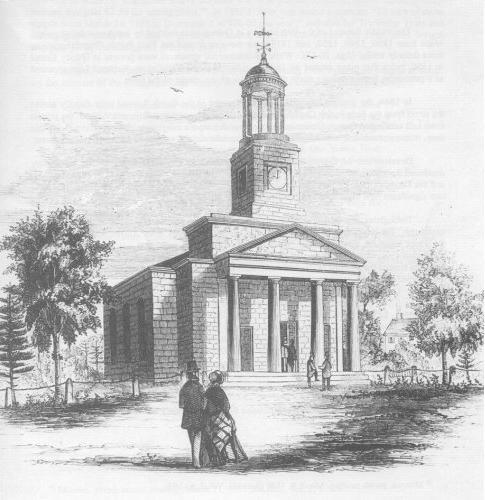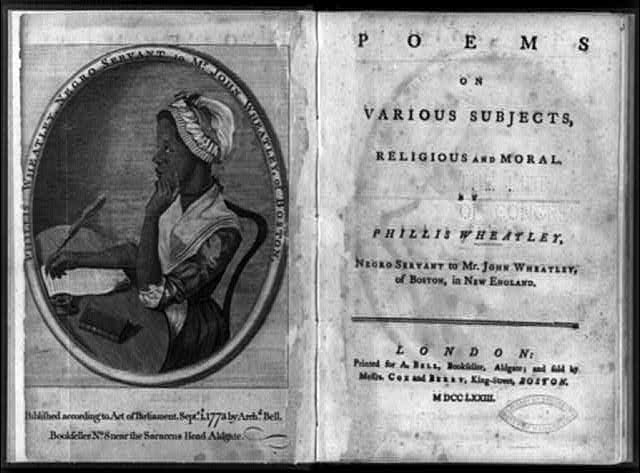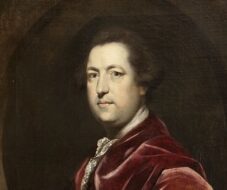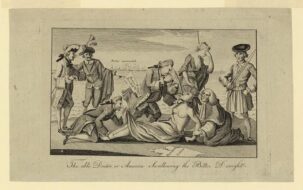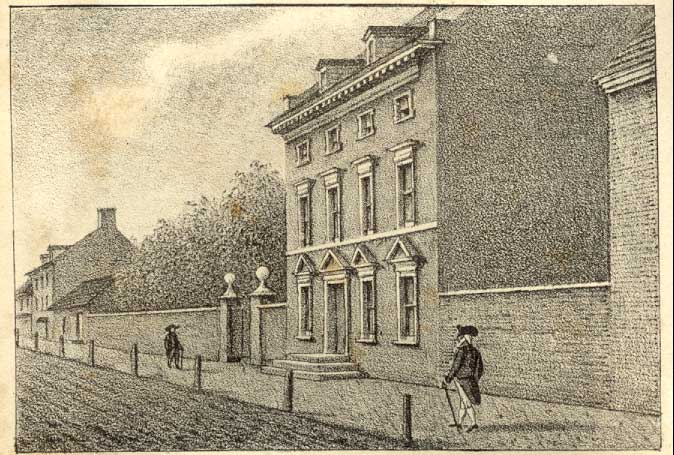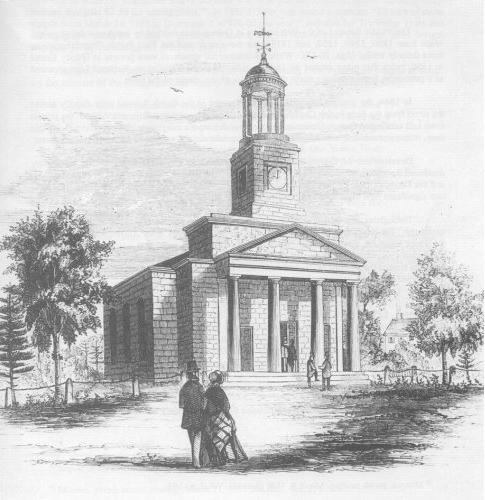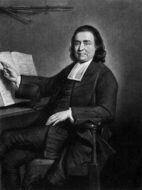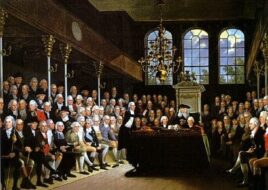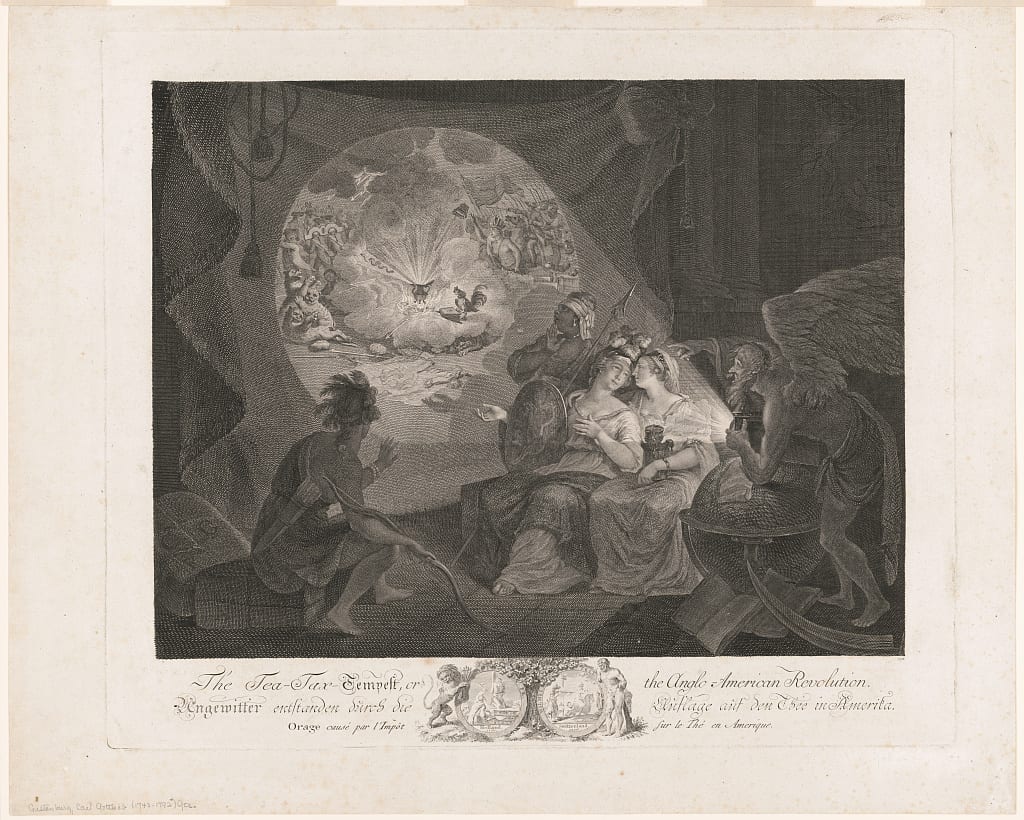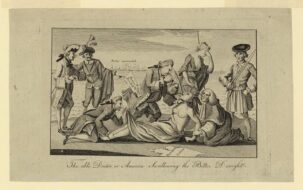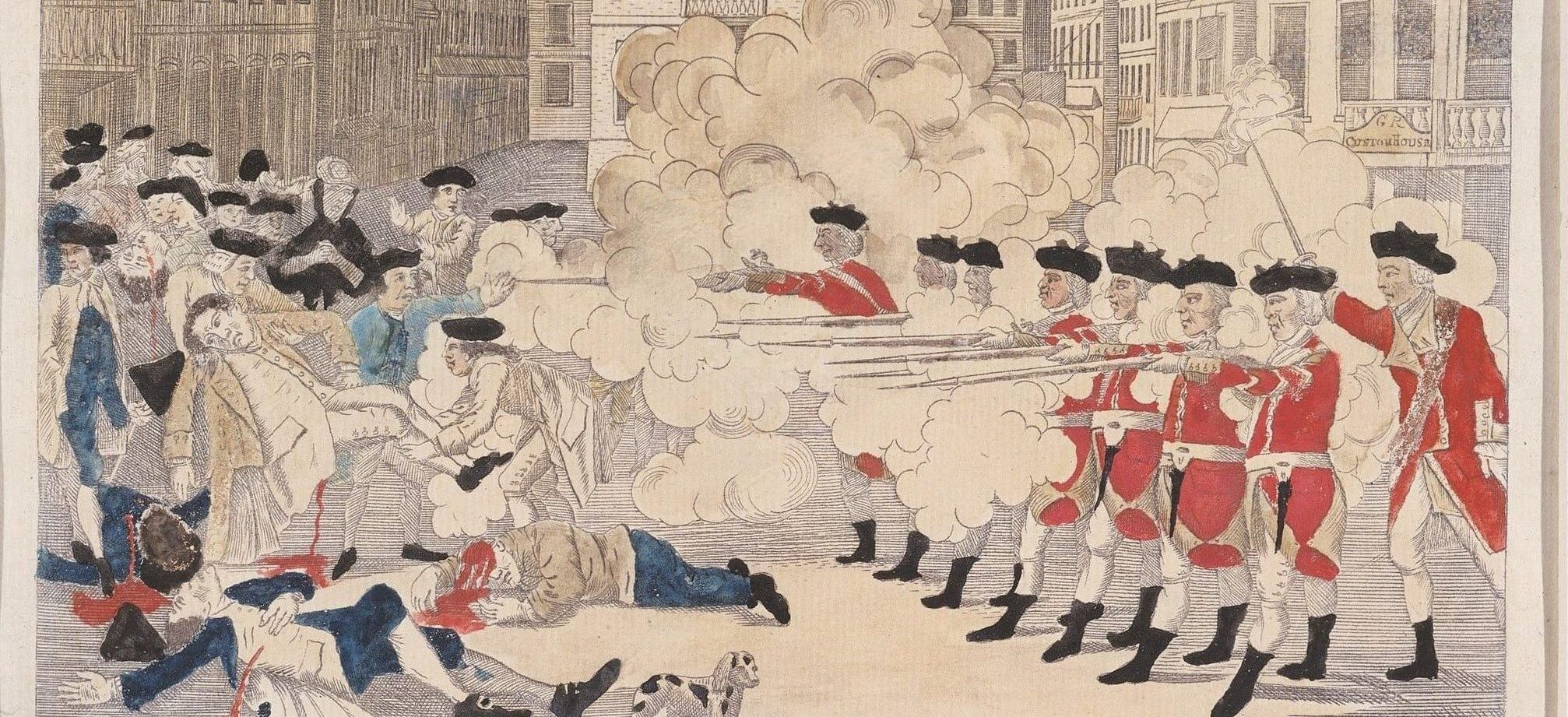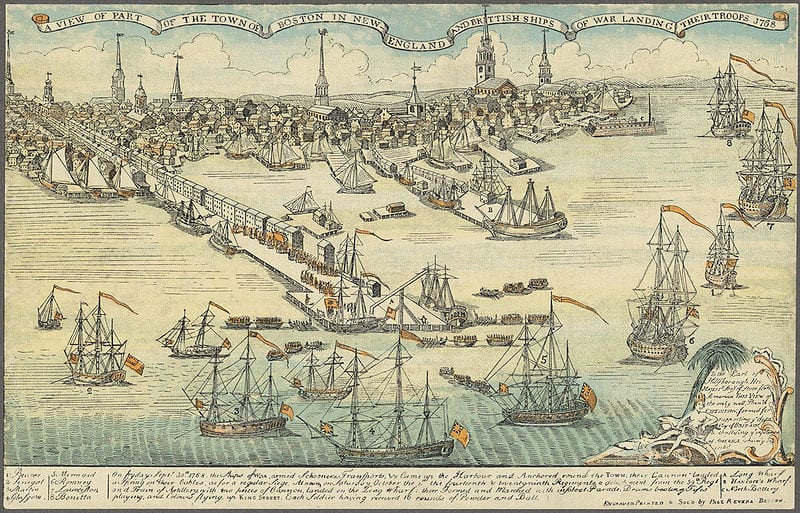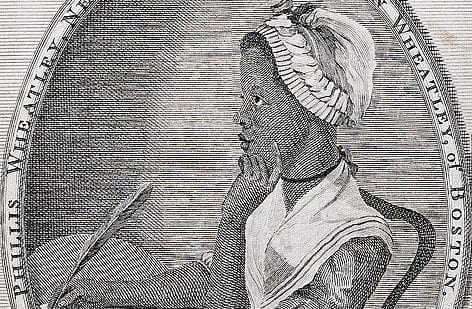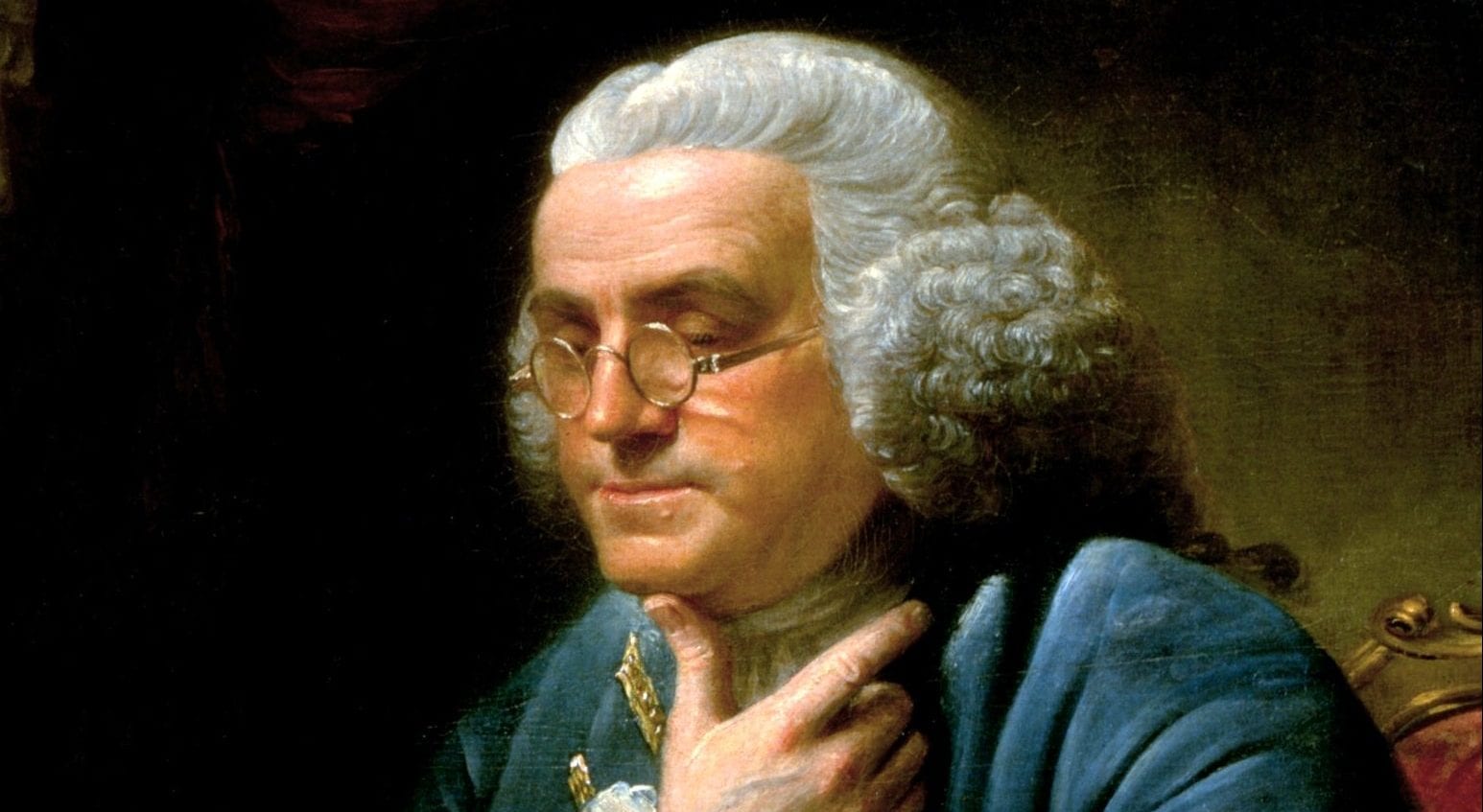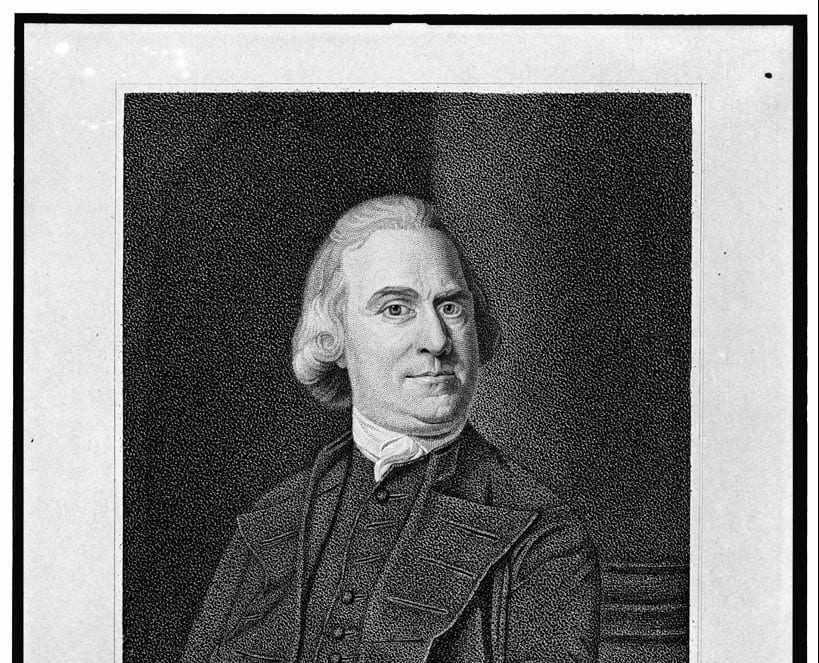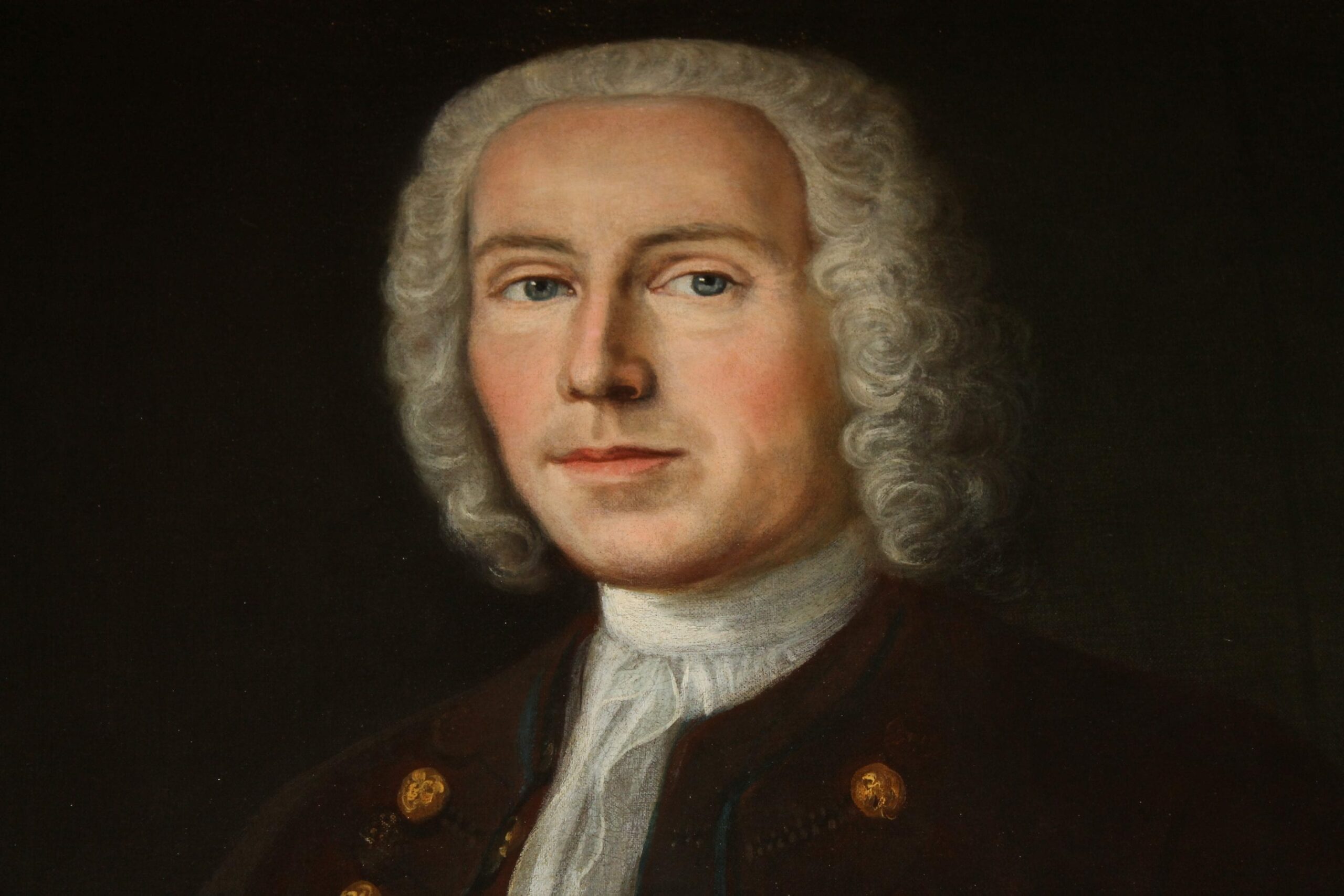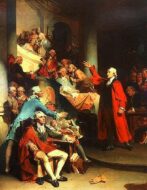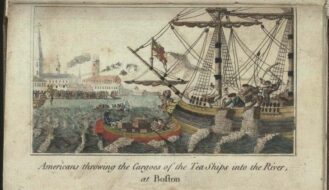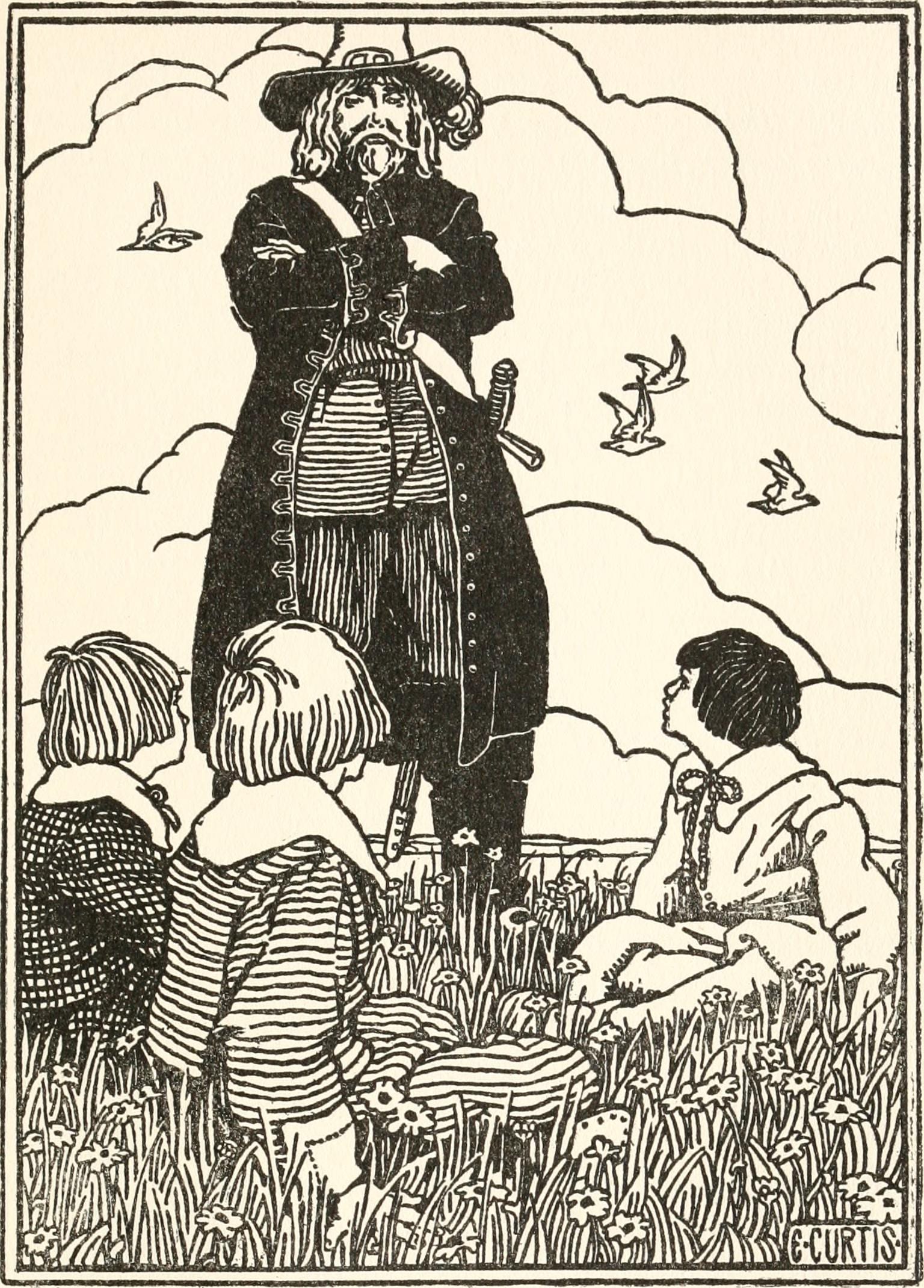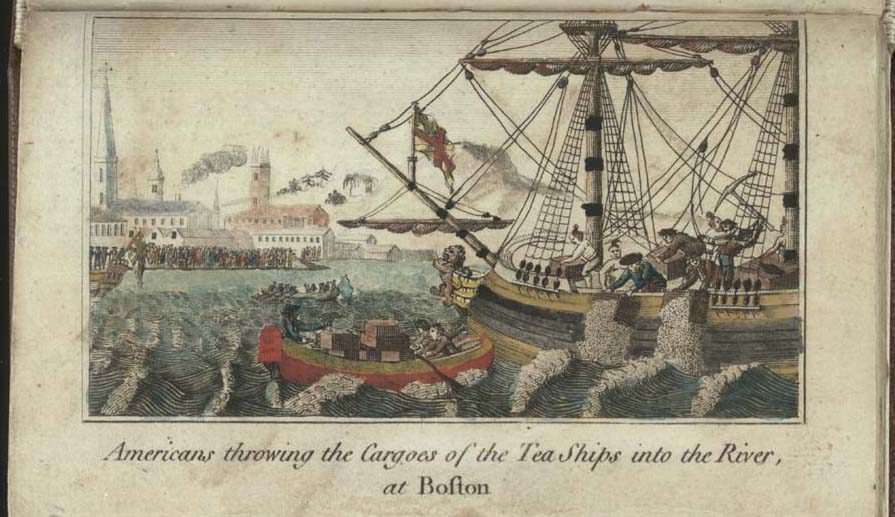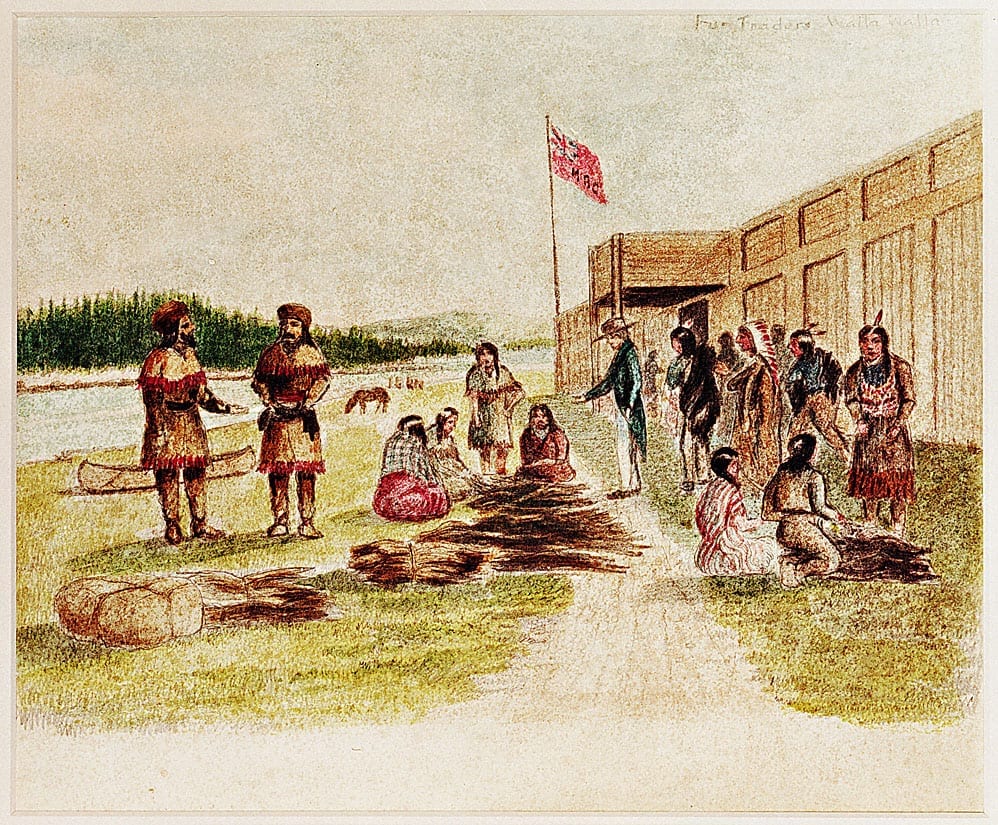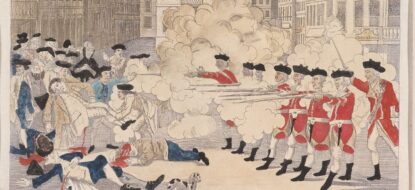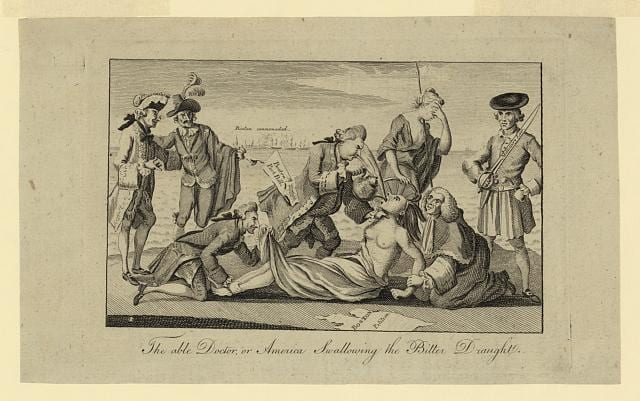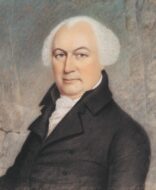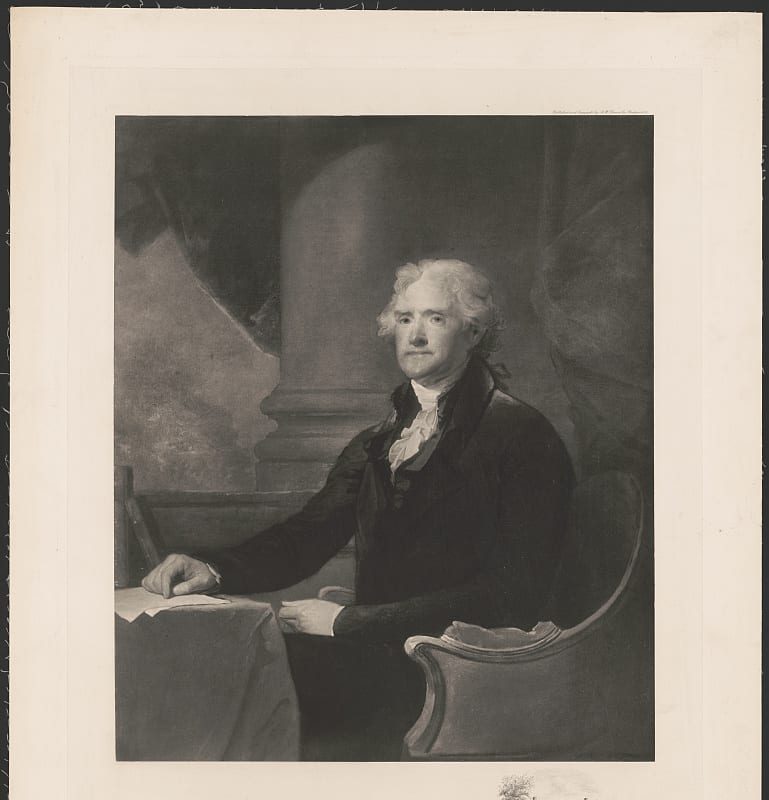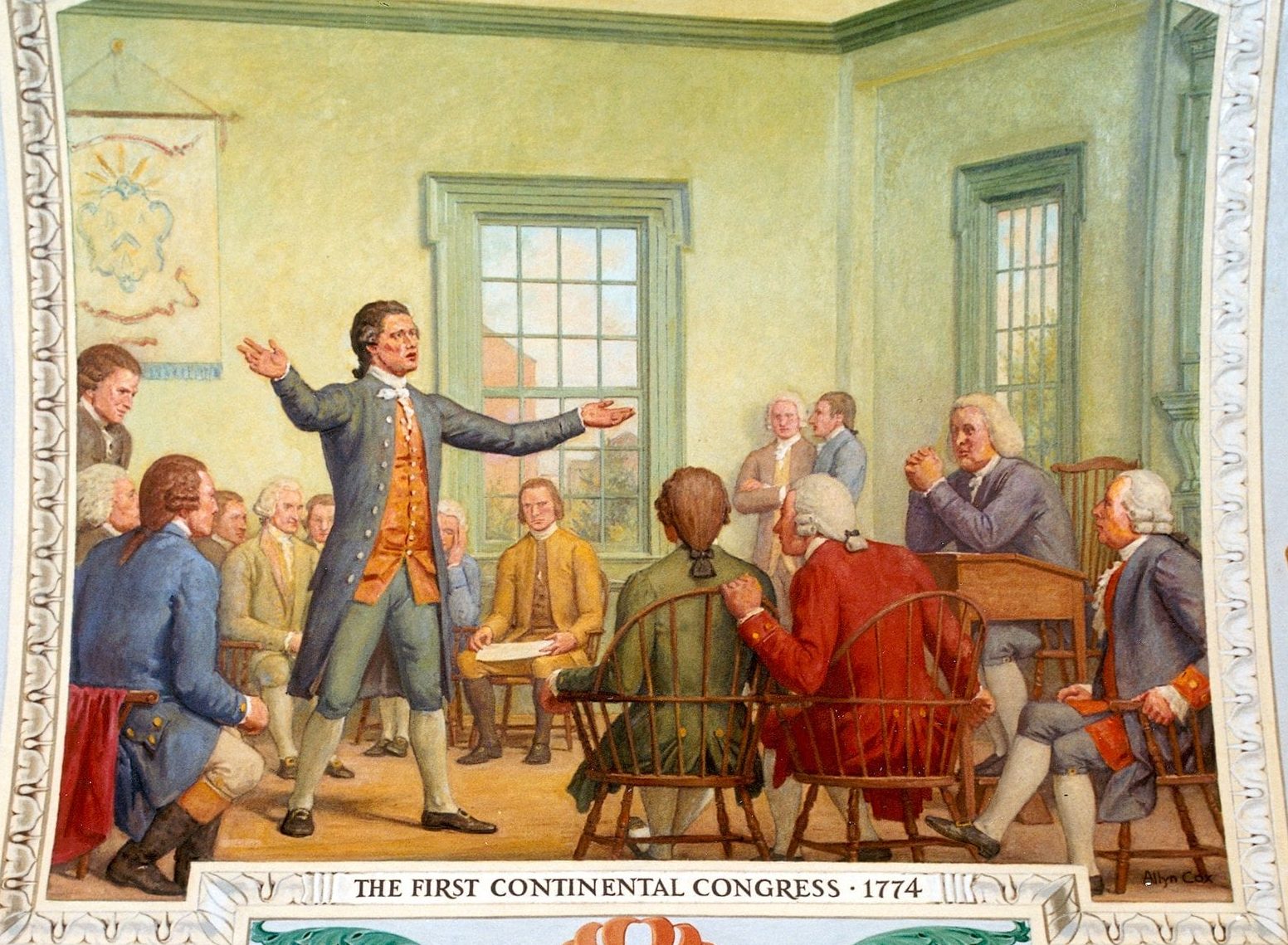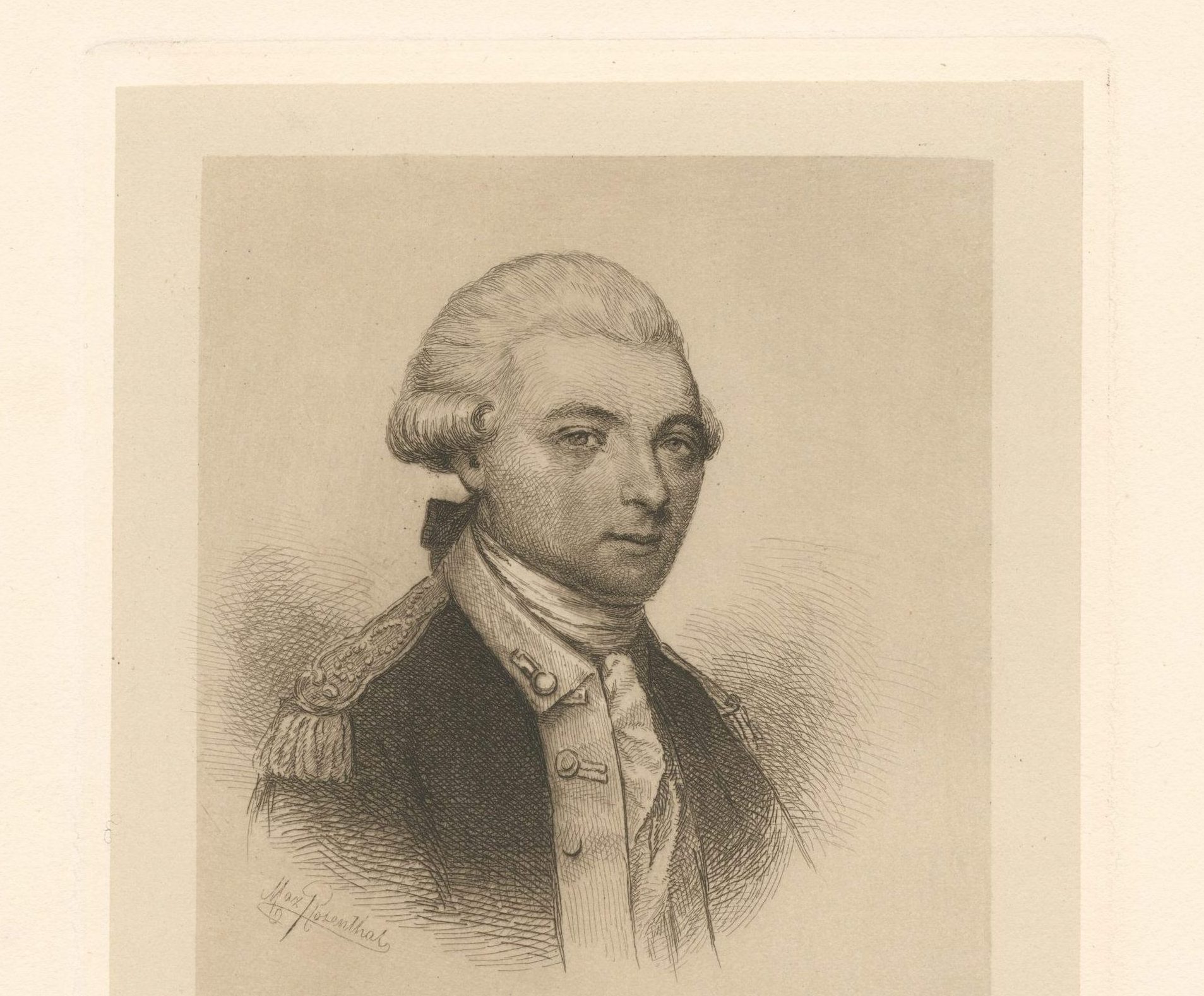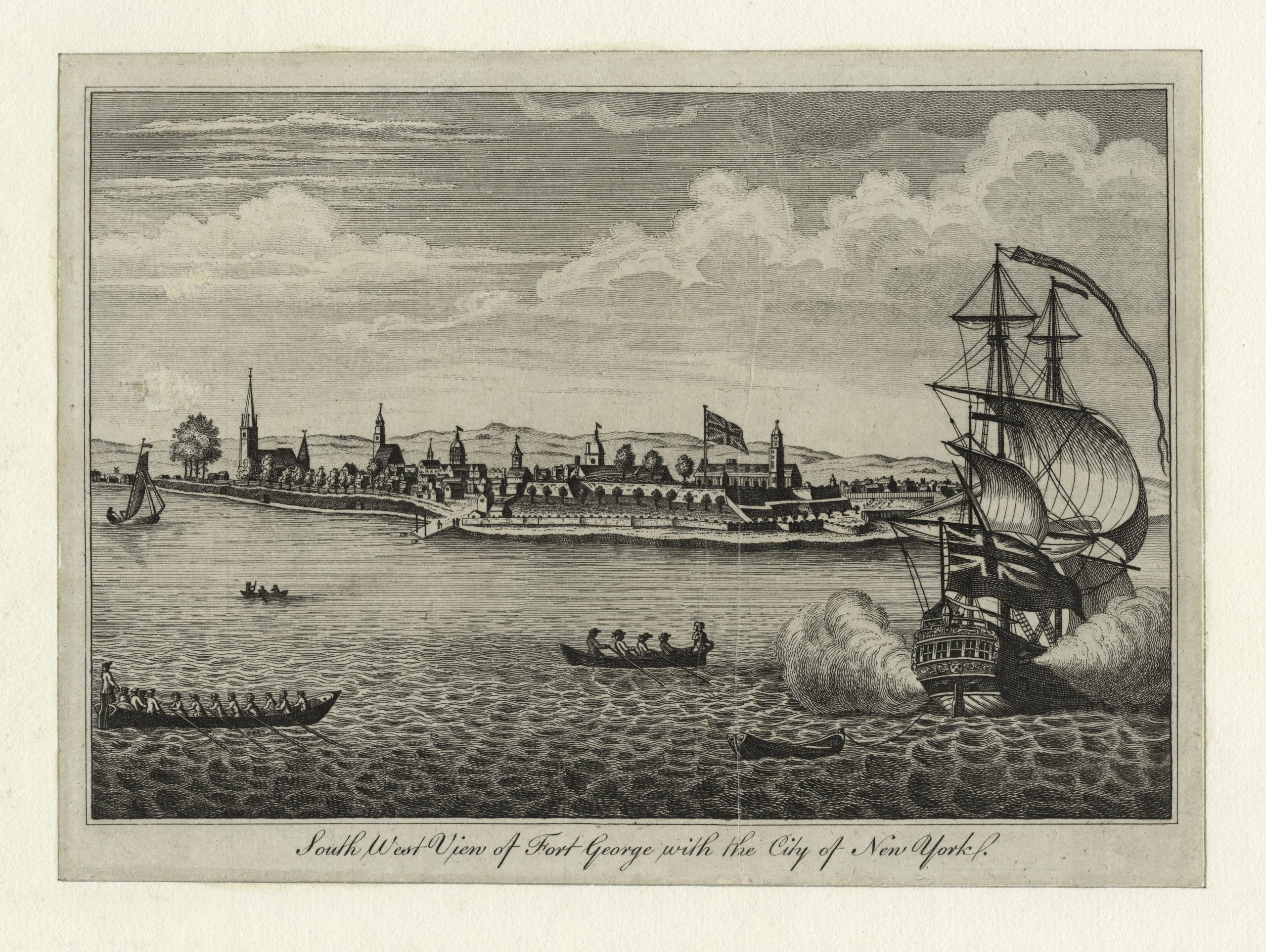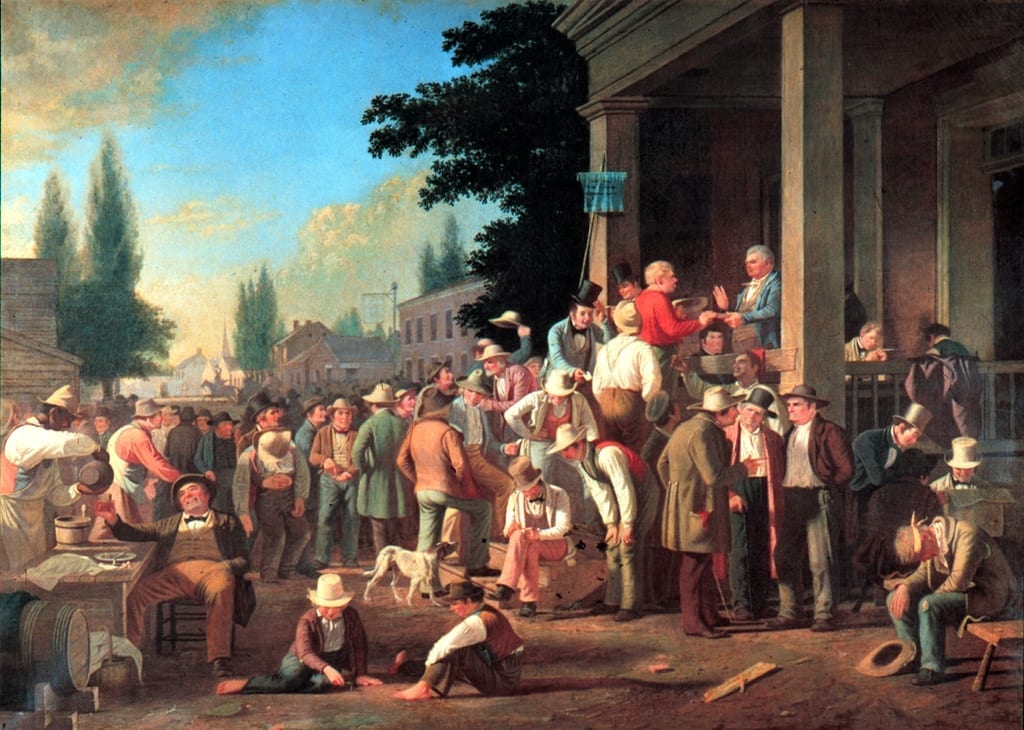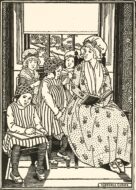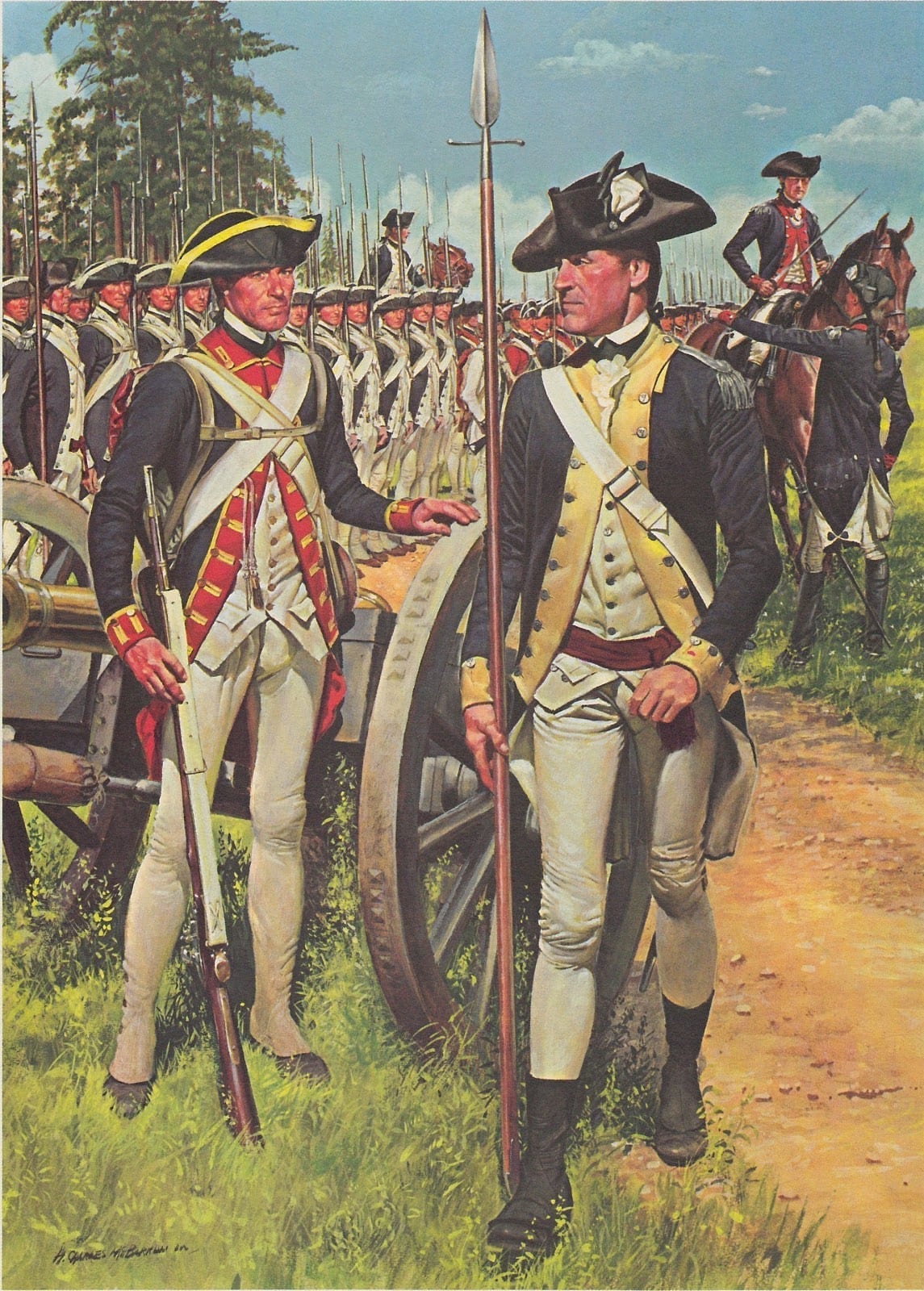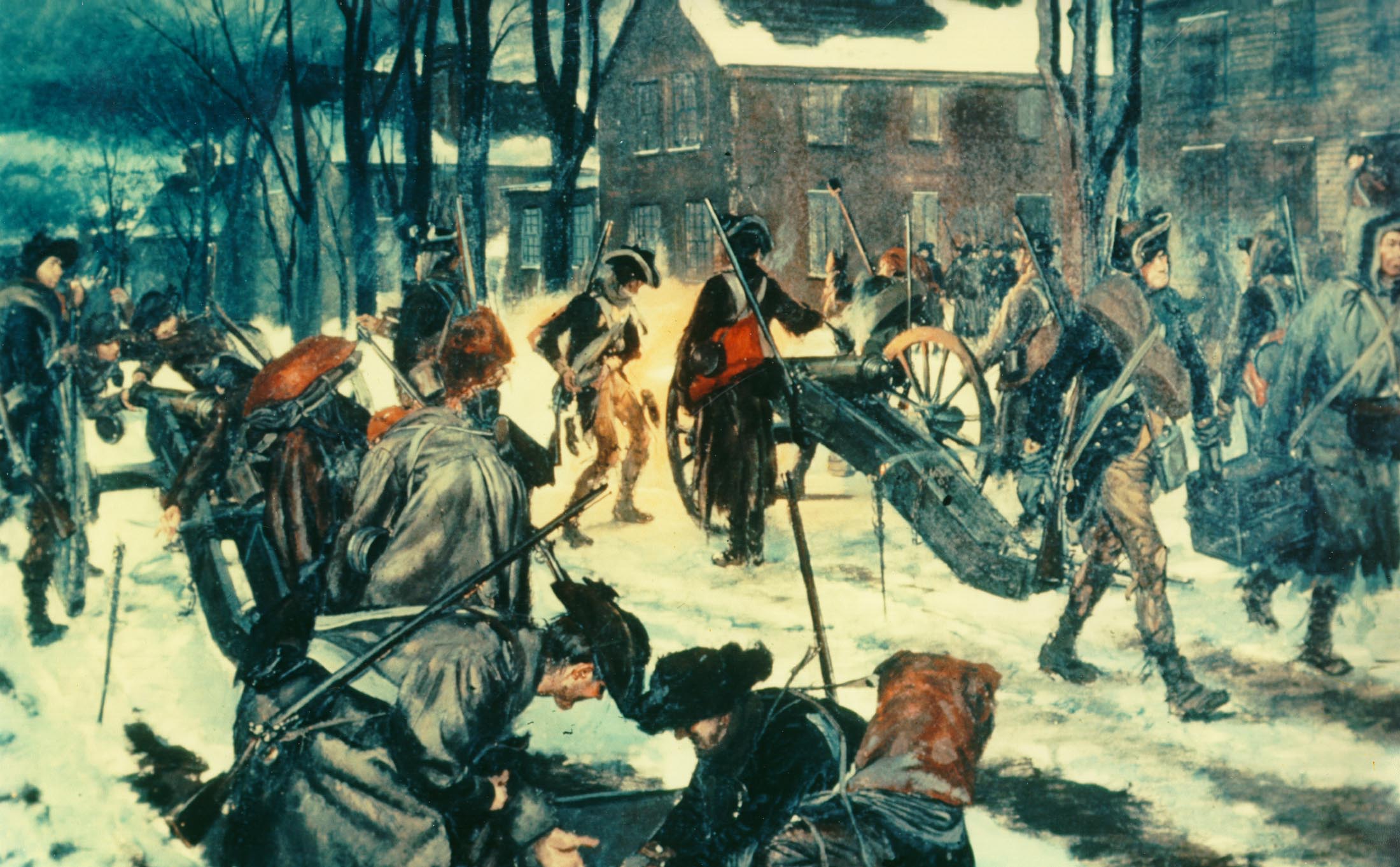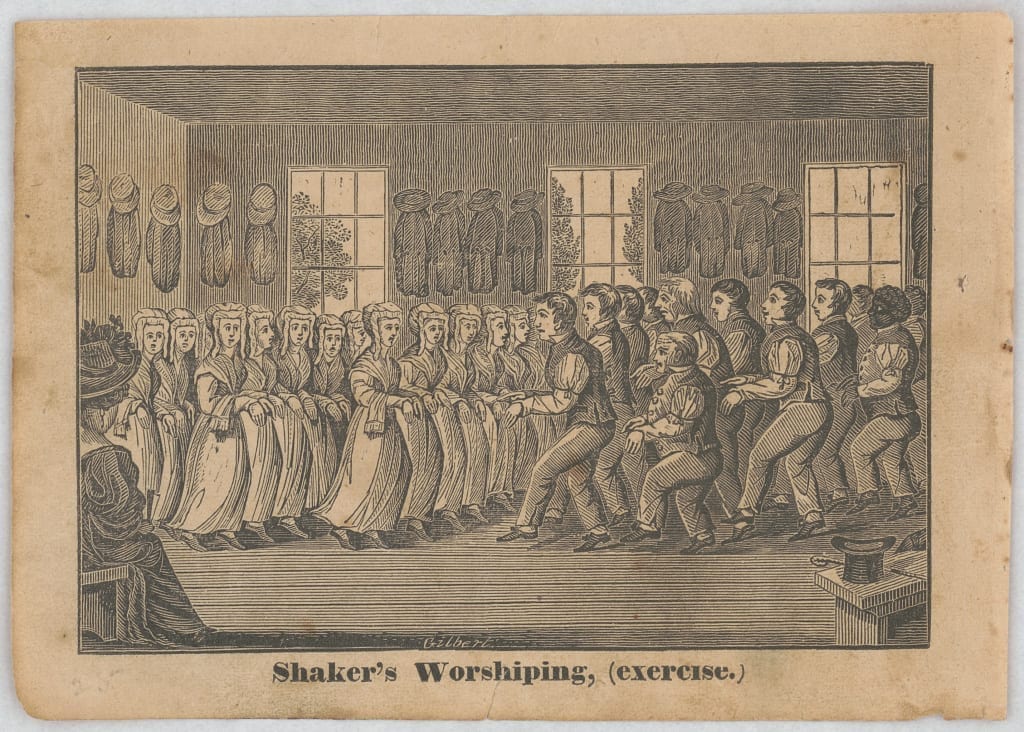
No related resources
Introduction
Benjamin Franklin (1706–1790) began his life in poverty and obscurity, and yet he became perhaps the most famous man in the Euro-American world of the eighteenth century: a printer, a successful and wealthy businessman, inventor, scientist, writer, politician, civic leader, and diplomat. The Autobiography, addressed to his son, is the story of how such humble beginnings led to such a grand life. In living that life and writing so well about it, Franklin helped establish a way of life that Americans recognized with pride as distinctively their own. America was the sort of place where, for the first time in human history, a person could start life with nothing except talent and a drive to better himself and succeed. This was the essential justice of the American way of life: rewards came to those who earned them. Frederick Douglass and Abraham Lincoln were two nineteenth-century examples of this success, as were Harry Truman and Dwight Eisenhower in the twentieth century. So important was Franklin for establishing this way of life that he is sometimes referred to as the “First American.” When in his Autobiography Franklin spoke of his posterity, we should understand him to be speaking to all those Americans who were to come after him.
The excerpts included here focus on Franklin’s moral teaching and outlook, since that was the key, he said, to the way of life he pioneered. The material also includes a few anecdotes that provide some perspective on how Franklin lived and acted. Franklin was often criticized as being too utilitarian in his outlook, too set on moneymaking, for example, in a common and mean way. This criticism neglected to take into account Franklin’s own report that he exerted such extraordinary discipline over himself in pursuing a plan of self-improvement so that he would have time to read and learn. For example, the money and time he saved by being a vegetarian early in life he spent on books and reading. It was his unrelenting thirst to learn that shaped his life. Franklin’s learning resulted in useful inventions and civic projects, but his Autobiography makes clear that he sought understanding for its own sake. His critics also failed to consider that the unprecedented justice the American way of life aimed to achieve—rewards commensurate with individual merit—required that the unbought grace of aristocratic life not dominate America. Those born equal must make something of themselves with nothing but their own talent and industry (a favorite word of Franklin’s). The self-made are sometimes rough-hewn.
Source: Autobiography of Benjamin Franklin, ed. Frank Woodworth Pine (New York: Henry Holt, 1916), https://www.gutenberg.org/files/20203/20203-h/20203-h.htm. An annotated version is available at https://anthologydev.lib.virginia.edu/work/Franklin/
franklin-autobiography.
DEAR SON: I have ever had pleasure in obtaining any little anecdotes of my ancestors. You may remember the inquiries I made among the remains of my relations when you were with me in England, and the journey I undertook for that purpose. Imagining it may be equally agreeable to you to know the circumstances of my life, many of which you are yet unacquainted with, and expecting the enjoyment of a week’s uninterrupted leisure in my present country retirement, I sit down to write them for you. To which I have besides some other inducements. Having emerged from the poverty and obscurity in which I was born and bred, to a state of affluence and some degree of reputation in the world, and having gone so far through life with a considerable share of felicity, the conducing means I made use of, which with the blessing of God so well succeeded, my posterity may like to know, as they may find some of them suitable to their own situations, and therefore fit to be imitated.
That felicity, when I reflected on it, has induced me sometimes to say, that were it offered to my choice, I should have no objection to a repetition of the same life from its beginning, only asking the advantages authors have in a second edition to correct some faults of the first. So I might, besides correcting the faults, change some sinister accidents and events of it for others more favorable. But though this were denied, I should still accept the offer. Since such a repetition is not to be expected, the next thing most like living one’s life over again seems to be a recollection of that life, and to make that recollection as durable as possible by putting it down in writing.
Hereby, too, I shall indulge the inclination so natural in old men, to be talking of themselves and their own past actions; and I shall indulge it without being tiresome to others, who, through respect to age, might conceive themselves obliged to give me a hearing, since this may be read or not as anyone pleases. And, lastly (I may as well confess it, since my denial of it will be believed by nobody), perhaps I shall a good deal gratify my own vanity. Indeed, I scarce ever heard or saw the introductory words, “Without vanity I may say,” etc., but some vain thing immediately followed. Most people dislike vanity in others, whatever share they have of it themselves; but I give it fair quarter wherever I meet with it, being persuaded that it is often productive of good to the possessor, and to others that are within his sphere of action; and therefore, in many cases, it would not be altogether absurd if a man were to thank God for his vanity among the other comforts of life.
And now I speak of thanking God, I desire with all humility to acknowledge that I owe the mentioned happiness of my past life to His kind providence, which lead me to the means I used and gave them success. My belief of this induces me to hope, though I must not presume, that the same goodness will still be exercised toward me, in continuing that happiness, or enabling me to bear a fatal reverse, which I may experience as others have done; the complexion of my future fortune being known to Him only in whose power it is to bless to us even our afflictions. . . .
. . .[L]iving near the water, I was much in and about it, learnt early to swim well, and to manage boats; and when in a boat or canoe with other boys, I was commonly allowed to govern, especially in any case of difficulty; and upon other occasions I was generally a leader among the boys, and sometimes led them into scrapes, of which I will mention one instance, as it shows an early projecting public spirit, though not then justly conducted.
There was a salt marsh that bounded part of the mill-pond, on the edge of which, at high water, we used to stand to fish for minnows. By much trampling, we had made it a mere quagmire. My proposal was to build a wharf there fit for us to stand upon, and I showed my comrades a large heap of stones, which were intended for a new house near the marsh, and which would very well suit our purpose. Accordingly, in the evening, when the workmen were gone, I assembled a number of my playfellows, and working with them diligently like so many emmets,1 sometimes two or three to a stone, we brought them all away and built our little wharf. The next morning the workmen were surprised at missing the stones, which were found in our wharf. Inquiry was made after the removers; we were discovered and complained of; several of us were corrected by our fathers; and, though I pleaded the usefulness of the work, mine convinced me that nothing was useful which was not honest. . . .
I have been the more particular in this description of my journey [from Boston to Philadelphia],2 and shall be so of my first entry into that city, that you may in your mind compare such unlikely beginnings with the figure I have since made there. I was in my working dress, my best clothes being to come round by sea. I was dirty from my journey; my pockets were stuffed out with shirts and stockings, and I knew no soul nor where to look for lodging. I was fatigued with traveling, rowing, and want of rest, I was very hungry; and my whole stock of cash consisted of a Dutch dollar, and about a shilling in copper. The latter I gave the people of the boat for my passage, who at first refused it, on account of my rowing; but I insisted on their taking it. A man being sometimes more generous when he has but a little money than when he has plenty, perhaps through fear of being thought to have but little.
Then I walked up the street, gazing about till near the market-house I met a boy with bread. I had made many a meal on bread, and, inquiring where he got it, I went immediately to the baker’s he directed me to, in Second-street, and asked for biscuit . . .I bade him give me three-penny worth of any sort. He gave me, accordingly, three great puffy rolls. I was surprised at the quantity, but took it, and, having no room in my pockets, walked off with a roll under each arm, and eating the other. Thus I went up Market-street as far as Fourth-street, passing by the door of Mr. Read, my future wife’s father; when she, standing at the door, saw me, and thought I made, as I certainly did, a most awkward, ridiculous appearance. Then I turned and went down Chestnut-street and part of Walnut-street, eating my roll all the way, and, coming round, found myself again at Market-street wharf, near the boat I came in, to which I went for a draught of the river water; and, being filled with one of my rolls, gave the other two to a woman and her child that came down the river in the boat with us, and were waiting to go farther.
Thus refreshed, I walked again up the street, which by this time had many clean-dressed people in it, who were all walking the same way. I joined them, and thereby was led into the great meeting-house of the Quakers near the market. I sat down among them, and, after looking round awhile and hearing nothing said, being very drowsy through labor and want of rest the preceding night, I fell fast asleep, and continued so till the meeting broke up, when one was kind enough to rouse me. This was, therefore, the first house I was in, or slept in, in Philadelphia. . . .
. . . My always keeping good hours, and giving little trouble in the family, made her [Franklin’s landlady in London, England, where Franklin traveled in 1724 on business and found himself stranded] unwilling to part with me, so that, when I talked of a lodging I had heard of, nearer my business, for two shillings a week, which, intent as I now was on saving money, made some difference, she bid me not think of it, for she would abate me two shillings a week for the future; so I remained with her at one shilling and sixpence as long as I stayed in London.
In a garret of her house there lived a maiden lady of seventy, in the most retired manner, of whom my landlady gave me this account: that she was a Roman Catholic, had been sent abroad when young, and lodged in a nunnery with an intent of becoming a nun; but, the country not agreeing with her, she returned to England, where, there being no nunnery, she had vowed to lead the life of a nun, as near as might be done in those circumstances. Accordingly, she had given all her estate to charitable uses, reserving only twelve pounds a year to live on, and out of this sum she still gave a great deal in charity, living herself on water-gruel only, and using no fire but to boil it. She had lived many years in that garret, being permitted to remain there gratis by successive Catholic tenants of the house below, as they deemed it a blessing to have her there. A priest visited her to confess her every day. “I have asked her,” says my landlady, “how she, as she lived, could possibly find so much employment for a confessor?” “Oh,” said she, “it is impossible to avoid vain thoughts.” I was permitted once to visit her. She was cheerful and polite, and conversed pleasantly. The room was clean, but had no other furniture than a mattress, a table with a crucifix and book, a stool which she gave me to sit on, and a picture over the chimney of Saint Veronica displaying her handkerchief, with the miraculous figure of Christ’s bleeding face on it, which she explained to me with great seriousness. She looked pale, but was never sick; and I give it as another instance on how small an income, life and health may be supported. . . .
Before I enter upon my public appearance in business [in Philadelphia, to which Franklin returned after about eighteen months in England], it may be well to let you know the then state of my mind with regard to my principles and morals, that you may see how far those influenced the future events of my life. My parents had early given me religious impressions, and brought me through my childhood piously in the Dissenting way.3 But I was scarce fifteen, when, after doubting by turns of several points, as I found them disputed in the different books I read, I began to doubt of Revelation itself. Some books against Deism fell into my hands;4 they were said to be the substance of sermons preached at Boyle’s Lectures.5 It happened that they wrought an effect on me quite contrary to what was intended by them; for the arguments of the Deists, which were quoted to be refuted, appeared to me much stronger than the refutations; in short, I soon became a thorough Deist. My arguments perverted some others, particularly Collins and Ralph;6 but, each of them having afterwards wronged me greatly without the least compunction, and recollecting Keith’s7 conduct toward me (who was another free-thinker), and my own toward Vernon and Miss Read,8 which at times gave me great trouble, I began to suspect that this doctrine, though it might be true, was not very useful. . . . My London pamphlet9 which … from the attributes of God, his infinite wisdom, goodness, and power, concluded that nothing could possibly be wrong in the world, and that vice and virtue were empty distinctions, no such things existing, appeared now not so clever a performance as I once thought it; and I doubted whether some error had not insinuated itself unperceived into my argument, so as to infect all that followed, as is common in metaphysical reasonings. . . .
I now opened a little stationer’s shop. . . .In order to secure my credit and character as a tradesman, I took care not only to be in reality industrious and frugal, but to avoid all appearances to the contrary. I dressed plainly; I was seen at no places of idle diversion. I never went out a fishing or shooting; a book, indeed, sometimes debauched me from my work, but that was seldom, snug, and gave no scandal; and, to show that I was not above my business, I sometimes brought home the paper I purchased at the stores through the streets on a wheelbarrow. Thus being esteemed an industrious, thriving young man, and paying duly for what I bought, the merchants who imported stationery solicited my custom; others proposed supplying me with books, and I went on swimmingly. . . .
And now [1731] I set on foot my first project of a public nature, that for a subscription library. I drew up the proposals, got them put into form by our great scrivener, Brockden, and, by the help of my friends in the Junto, procured fifty subscribers of forty shillings each to begin with, and ten shillings a year for fifty years, the term our company was to continue. We afterward obtained a charter, the company being increased to one hundred: this was the mother of all the North American subscription libraries, now so numerous. It is become a great thing itself, and continually increasing. These libraries have improved the general conversation of the Americans, made the common tradesmen and farmers as intelligent as most gentlemen from other countries, and perhaps have contributed in some degree to the stand so generally made throughout the colonies in defense of their privileges. . . .
It was about this time I conceived the bold and arduous project of arriving at moral perfection. I wished to live without committing any fault at any time; I would conquer all that either natural inclination, custom, or company might lead me into. As I knew, or thought I knew, what was right and wrong, I did not see why I might not always do the one and avoid the other. But I soon found I had undertaken a task of more difficulty than I had imagined. While my care was employed in guarding against one fault, I was often surprised by another; habit took the advantage of inattention; inclination was sometimes too strong for reason. I concluded, at length, that the mere speculative conviction that it was our interest to be completely virtuous, was not sufficient to prevent our slipping; and that the contrary habits must be broken, and good ones acquired and established, before we can have any dependence on a steady, uniform rectitude of conduct. For this purpose I therefore contrived the following method. . . .
. . .I included under thirteen names of virtues all that at that time occurred to me as necessary or desirable, and annexed to each a short precept, which fully expressed the extent I gave to its meaning.
These names of virtues, with their precepts, were:
- Temperance
Eat not to dullness; drink not to elevation. - Silence
Speak not but what may benefit others or yourself; avoid trifling conversation. - Order
Let all your things have their places; let each part of your business have its time. - Resolution
Resolve to perform what you ought; perform without fail what you resolve. - Frugality
Make no expense but to do good to others or yourself; i.e., waste nothing. - Industry
Lose no time; be always employed in something useful; cut off all unnecessary actions. - Sincerity
Use no hurtful deceit; think innocently and justly; and, if you speak, speak accordingly. - Justice
Wrong none by doing injuries or omitting the benefits that are your duty. - Moderation.
Avoid extremes; forbear resenting injuries so much as you think they deserve. - Cleanliness
Tolerate no uncleanliness in body, clothes, or habitation. - Tranquility
Be not disturbed at trifles, or at accidents common or unavoidable. - Chastity
Rarely use venery10 but for health or offspring; never to dullness, weakness, or the injury of your own or another’s peace or reputation. - Humility
Imitate Jesus and Socrates.
My intention being to acquire the habitude of all these virtues, I judged it would be well not to distract my attention by attempting the whole at once, but to fix it on one of them at a time; and, when I should be master of that, then to proceed to another, and so on, till I should have gone through the thirteen; and, as the previous acquisition of some might facilitate the acquisition of certain others, I arranged them with that view, as they stand above. Temperance first, as it tends to procure that coolness and clearness of head, which is so necessary where constant vigilance was to be kept up, and guard maintained against the unremitting attraction of ancient habits, and the force of perpetual temptations. This being acquired and established, Silence would be more easy; and my desire being to gain knowledge at the same time that I improved in virtue, and considering that in conversation it was obtained rather by the use of the ears than of the tongue, and therefore wishing to break a habit I was getting into of prattling, punning, and joking, which only made me acceptable to trifling company, I gave Silence the second place. This and the next, Order, I expected would allow me more time for attending to my project and my studies. Resolution, once become habitual, would keep me firm in my endeavors to obtain all the subsequent virtues; Frugality and Industry freeing me from my remaining debt, and producing affluence and independence, would make more easy the practice of Sincerity and Justice, etc., etc. Conceiving then, that, agreeably to the advice of Pythagoras in his Golden Verses,11 daily examination would be necessary, I contrived the following method for conducting that examination.
I made a little book, in which . . .I might mark, by a little black spot, every fault I found upon examination to have been committed respecting that virtue upon that day. . . .
I entered upon the execution of this plan for self-examination, and continued it with occasional intermissions for some time. I was surprised to find myself so much fuller of faults than I had imagined; but I had the satisfaction of seeing them diminish. . . .After a while I went through one course only in a year, and afterward only one in several years, till at length I omitted them entirely, being employed in voyages and business abroad, with a multiplicity of affairs that interfered; but I always carried my little book with me. . . .
It may be well my posterity should be informed that to this little artifice, with the blessing of God, their ancestor owed the constant felicity of his life, down to his 79th year, in which this is written. What reverses may attend the remainder is in the hand of Providence; but, if they arrive, the reflection on past happiness enjoyed ought to help his bearing them with more resignation. To Temperance he ascribes his long-continued health, and what is still left to him of a good constitution; to Industry and Frugality, the early easiness of his circumstances and acquisition of his fortune, with all that knowledge that enabled him to be a useful citizen, and obtained for him some degree of reputation among the learned; to Sincerity and Justice, the confidence of his country, and the honorable employs it conferred upon him; and to the joint influence of the whole mass of the virtues, even in the imperfect state he was able to acquire them, all that evenness of temper, and that cheerfulness in conversation, which makes his company still sought for, and agreeable even to his younger acquaintance. I hope, therefore, that some of my descendants may follow the example and reap the benefit.
It will be remarked that, though my scheme was not wholly without religion, there was in it no mark of any of the distinguishing tenets of any particular sect. I had purposely avoided them; for, being fully persuaded of the utility and excellency of my method, and that it might be serviceable to people in all religions, and intending some time or other to publish it, I would not have anything in it that should prejudice anyone, of any sect, against it. I purposed writing a little comment on each virtue, in which I would have shown the advantages of possessing it, and the mischiefs attending its opposite vice; and I should have called my book The Art of Virtue, because it would have shown the means and manner of obtaining virtue, which would have distinguished it from the mere exhortation to be good, that does not instruct and indicate the means, but is like the apostle’s man of verbal charity, who only without showing to the naked and hungry how or where they might get clothes or victuals, exhorted them to be fed and clothed.—James 2: 15, 16.
But it so happened that my intention of writing and publishing this comment was never fulfilled. I did, indeed, from time to time, put down short hints of the sentiments, reasonings, etc., to be made use of in it, some of which I have still by me; but the necessary close attention to private business in the earlier part of my life, and public business since, have occasioned my postponing it; for, it being connected in my mind with a great and extensive project, that required the whole man to execute, and which an unforeseen succession of employs prevented my attending to, it has hitherto remained unfinished.
In this piece it was my design to explain and enforce this doctrine, that vicious actions are not hurtful because they are forbidden, but forbidden because they are hurtful, the nature of man alone considered; that it was, therefore, everyone’s interest to be virtuous who wished to be happy even in this world; and I should, from this circumstance (there being always in the world a number of rich merchants, nobility, states, and princes, who have need of honest instruments for the management of their affairs, and such being so rare), have endeavored to convince young persons that no qualities were so likely to make a poor man’s fortune as those of probity and integrity.
My list of virtues contained at first but twelve; but a Quaker friend having kindly informed me that I was generally thought proud; that my pride showed itself frequently in conversation; that I was not content with being in the right when discussing any point, but was overbearing, and rather insolent, of which he convinced me by mentioning several instances; I determined endeavoring to cure myself, if I could, of this vice or folly among the rest, and I added Humility to my list, giving an extensive meaning to the word.
I cannot boast of much success in acquiring the reality of this virtue, but I had a good deal with regard to the appearance of it. I made it a rule to forbear all direct contradiction to the sentiments of others, and all positive assertion of my own. . . . When another asserted something that I thought an error, I denied myself the pleasure of contradicting him abruptly, and of showing immediately some absurdity in his proposition; and in answering I began by observing that in certain cases or circumstances his opinion would be right, but in the present case there appeared or seemed to me some difference, etc. I soon found the advantage of this change in my manner; the conversations I engaged in went on more pleasantly. The modest way in which I proposed my opinions procured them a readier reception and less contradiction; I had less mortification when I was found to be in the wrong, and I more easily prevailed with others to give up their mistakes and join with me when I happened to be in the right.
And this mode, which I at first put on with some violence to natural inclination, became at length so easy, and so habitual to me, that perhaps for these fifty years past no one has ever heard a dogmatical expression escape me. And to this habit (after my character of integrity) I think it principally owing that I had early so much weight with my fellow citizens when I proposed new institutions, or alterations in the old, and so much influence in public councils when I became a member; for I was but a bad speaker, never eloquent, subject to much hesitation in my choice of words, hardly correct in language, and yet I generally carried my points.
In reality, there is, perhaps, no one of our natural passions so hard to subdue as pride. Disguise it, struggle with it, beat it down, stifle it, mortify it as much as one pleases, it is still alive, and will every now and then peep out and show itself; you will see it, perhaps, often in this history; for, even if I could conceive that I had completely overcome it, I should probably be proud of my humility.
Having mentioned a great and extensive project which I had conceived, it seems proper that some account should be here given of that project and its object. Its first rise in my mind appears in the following little paper, accidentally preserved, viz.:
Observations on my reading history, in Library, May 19, 1731.
That the great affairs of the world, the wars, revolutions, etc., are carried on and effected by parties.
That the view of these parties is their present general interest, or what they take to be such.
That the different views of these different parties occasion all confusion.
That while a party is carrying on a general design, each man has his particular private interest in view.
That as soon as a party has gained its general point, each member becomes intent upon his particular interest; which, thwarting others, breaks that party into divisions, and occasions more confusion.
That few in public affairs act from a mere view of the good of their country, whatever they may pretend; and, though their actings bring real good to their country, yet men primarily considered that their own and their country’s interest was united, and did not act from a principle of benevolence.
That fewer still, in public affairs, act with a view to the good of mankind.
There seems to me at present to be great occasion for raising a United Party for Virtue, by forming the virtuous and good men of all nations into a regular body, to be governed by suitable good and wise rules, which good and wise men may probably be more unanimous in their obedience to, than common people are to common laws.
I at present think that whoever attempts this aright, and is well qualified, cannot fail of pleasing God, and of meeting with success.
B. F.
Revolving this project in my mind, as to be undertaken hereafter, when my circumstances should afford me the necessary leisure, I put down from time to time, on pieces of paper, such thoughts as occurred to me respecting it. Most of these are lost; but I find one purporting to be the substance of an intended creed, containing, as I thought, the essentials of every known religion, and being free of everything that might shock the professors of any religion. It is expressed in these words, viz.:
That there is oneGod, who made all things.
That he governs the world by his providence.
That he ought to be worshiped by adoration, prayer, and thanksgiving.
But that the most acceptable service of God is doing good to man.
That the soul is immortal.
And that God will certainly reward virtue and punish vice, either here or hereafter.
My ideas at that time were, that the sect should be begun and spread at first among young and single men only; that each person to be initiated should not only declare his assent to such creed, but should have exercised himself with the thirteen weeks’ examination and practice of the virtues, as in the beforementioned model; that the existence of such a society should be kept a secret, till it was become considerable, to prevent solicitations for the admission of improper persons, but that the members should each of them search among his acquaintance for ingenuous, well-disposed youths, to whom, with prudent caution, the scheme should be gradually communicated; that the members should engage to afford their advice, assistance, and support to each other in promoting one another’s interests, business, and advancement in life; that, for distinction, we should be called The Society of the Free and Easy: free, as being, by the general practice and habit of the virtues, free from the dominion of vice; and particularly by the practice of industry and frugality, free from debt, which exposes a man to confinement, and a species of slavery to his creditors.
This is as much as I can now recollect of the project, except that I communicated it in part to two young men, who adopted it with some enthusiasm; but my then narrow circumstances, and the necessity I was under of sticking close to my business, occasioned my postponing the further prosecution of it at that time; and my multifarious occupations, public and private, induced me to continue postponing, so that it has been omitted till I have no longer strength or activity left sufficient for such an enterprise; though I am still of opinion that it was a practicable scheme, and might have been very useful, by forming a great number of good citizens; and I was not discouraged by the seeming magnitude of the undertaking, as I have always thought that one man of tolerable abilities may work great changes, and accomplish great affairs among mankind, if he first forms a good plan, and, cutting off all amusements or other employments that would divert his attention, makes the execution of that same plan his sole study and business. . . .
Some may think these trifling matters12 not worth minding or relating; but when they consider that though dust blown into the eyes of a single person, or into a single shop on a windy day, is but of small importance, yet the great number of the instances in a populous city, and its frequent repetitions give it weight and consequence, perhaps they will not censure very severely those who bestow some attention to affairs of this seemingly low nature. Human felicity is produced not so much by great pieces of good fortune that seldom happen, as by little advantages that occur every day. Thus, if you teach a poor young man to shave himself, and keep his razor in order, you may contribute more to the happiness of his life than in giving him a thousand guineas. The money may be soon spent, the regret only remaining of having foolishly consumed it; but in the other case, he escapes the frequent vexation of waiting for barbers, and of their sometimes dirty fingers, offensive breaths, and dull razors; he shaves when most convenient to him, and enjoys daily the pleasure of its being done with a good instrument. With these sentiments I have hazarded the few preceding pages, hoping they may afford hints which some time or other may be useful to a city I love, having lived many years in it very happily, and perhaps to some of our towns in America. . . .
In 1754, war with France being again apprehended, a congress of commissioners from the different colonies was, by an order of the Lords of Trade,13 to be assembled at Albany, there to confer with the chiefs of the Six Nations14 concerning the means of defending both their country and ours. . . .
In our way thither,15 I projected and drew a plan for the union of all the colonies under one government, so far as might be necessary for defense, and other important general purposes. As we passed through New York, I had there shown my project to Mr. James Alexander and Mr. Kennedy,16 two gentlemen of great knowledge in public affairs, and, being fortified by their approbation, I ventured to lay it before the Congress. It then appeared that several of the commissioners had formed plans of the same kind. A previous question was first taken, whether a union should be established, which passed in the affirmative unanimously. A committee was then appointed, one member from each colony, to consider the several plans and report. Mine happened to be preferred, and, with a few amendments, was accordingly reported.
By this plan the general government was to be administered by a president-general, appointed and supported by the crown, and a grand council was to be chosen by the representatives of the people of the several colonies, met in their respective assemblies. The debates upon it in Congress went on daily, hand in hand with the Indian business. Many objections and difficulties were started, but at length they were all overcome, and the plan was unanimously agreed to, and copies ordered to be transmitted to the Board of Trade and to the assemblies of the several provinces. Its fate was singular; the assemblies did not adopt it, as they all thought there was too much prerogative in it, and in England it was judged to have too much of the democratic. The Board of Trade therefore did not approve of it, nor recommend it for the approbation of his majesty; but another scheme was formed, supposed to answer the same purpose better, whereby the governors of the provinces, with some members of their respective councils, were to meet and order the raising of troops, building of forts, etc., and to draw on the treasury of Great Britain for the expense, which was afterward to be refunded by an act of Parliament laying a tax on America. My plan, with my reasons in support of it, is to be found among my political papers that are printed.17
Being the winter following in Boston, I had much conversation with Governor Shirley upon both the plans. Part of what passed between us on the occasion may also be seen among those papers. The different and contrary reasons of dislike to my plan makes me suspect that it was really the true medium; and I am still of opinion it would have been happy for both sides the water if it had been adopted. The colonies, so united, would have been sufficiently strong to have defended themselves; there would then have been no need of troops from England; of course, the subsequent pretense for taxing America, and the bloody contest it occasioned, would have been avoided.18 But such mistakes are not new; history is full of the errors of states and princes. . . .
We had for our chaplain a zealous Presbyterian minister, Mr. Beatty, who complained to me that the men did not generally attend his prayers and exhortations.19 When they enlisted, they were promised, besides pay and provisions, a gill of rum a day, which was punctually served out to them, half in the morning, and the other half in the evening; and I observed they were as punctual in attending to receive it; upon which I said to Mr. Beatty, “It is, perhaps, below the dignity of your profession to act as steward of the rum, but if you were to deal it out and only just after prayers, you would have them all about you.” He liked the thought, undertook the office, and, with the help of a few hands to measure out the liquor, executed it to satisfaction, and never were prayers more generally and more punctually attended; so that I thought this method preferable to the punishment inflicted by some military laws for non-attendance on divine service. . . .
- 1. Ants.
- 2. Franklin left Boston for Philadelphia in 1723, a few months short of his seventeenth birthday, to escape an unpleasant apprenticeship to his brother.
- 3. Dissenters were people in England who separated from the Church of England. The Pilgrims and Puritans who settled in Massachusetts were Dissenters.
- 4. Generally speaking, Deists acknowledged belief in God but did not believe that God intervened in human affairs, and so were skeptical of scripture.
- 5. Lectures endowed by Robert Boyle (1627–1691), a British chemist, to examine the relationship between Christianity and natural science.
- 6. Two friends of Franklin’s.
- 7. A governor of Philadelphia who misled Franklin, leading to his stranding in London.
- 8. Franklin received money due to Samuel Vernon and used it for his own purposes, although he eventually repaid Vernon with interest. Franklin courted and made some promises to Deborah Read before his ill-fated trip to London, but while in London forgot his “engagements with Miss Read” and wrote her only one letter. Franklin and Read later married.
- 9. While in London, Franklin, who was then nineteen, wrote and published A Dissertation on Liberty and Necessity, Pleasure and Pain. It is available at https://founders.archives. gov/documents/Franklin/01-01-02-0028#BNFN-01-01-02-0028-fn-0003-ptr.
- 10. Sexual indulgence.
- 11. Pythagoras (c.570—c.495 BCE) was a Greek philosopher. The Golden Verses, a collection of moral exhortations, are traditionally attributed to him, although they first appeared long after his death.
- 12. Franklin referred to a plan for cleaning city streets, which he had just described in a passage of the Autobiography omitted from this excerpt.
- 13. The Lords or Commissioners of Trade and Plantations provided advice on the colonies to the British king and his advisers.
- 14. The Iroquois confederacy of Native American tribes in north-central New York.
- 15. Franklin was one of the commissioners from Pennsylvania.
- 16. James Alexander (1691–1756) was a public official and member of the American Philosophical Society; Archibald Kennedy (1685–1763) was a public official in New York who had written a pamphlet encouraging good relations with Native Americans.
- 17. Albany Plan of Union, July 10, 1754, https://founders.archives.gov/documents/ Franklin/01-05-02-0104.
- 18. Franklin wrote this passage of his Autobiography in 1788.
- 19. Franklin described an episode when he was in charge of some troops defending Pennsylvania.
The Rights of the Colonists
November 20, 1772
Conversation-based seminars for collegial PD, one-day and multi-day seminars, graduate credit seminars (MA degree), online and in-person.
